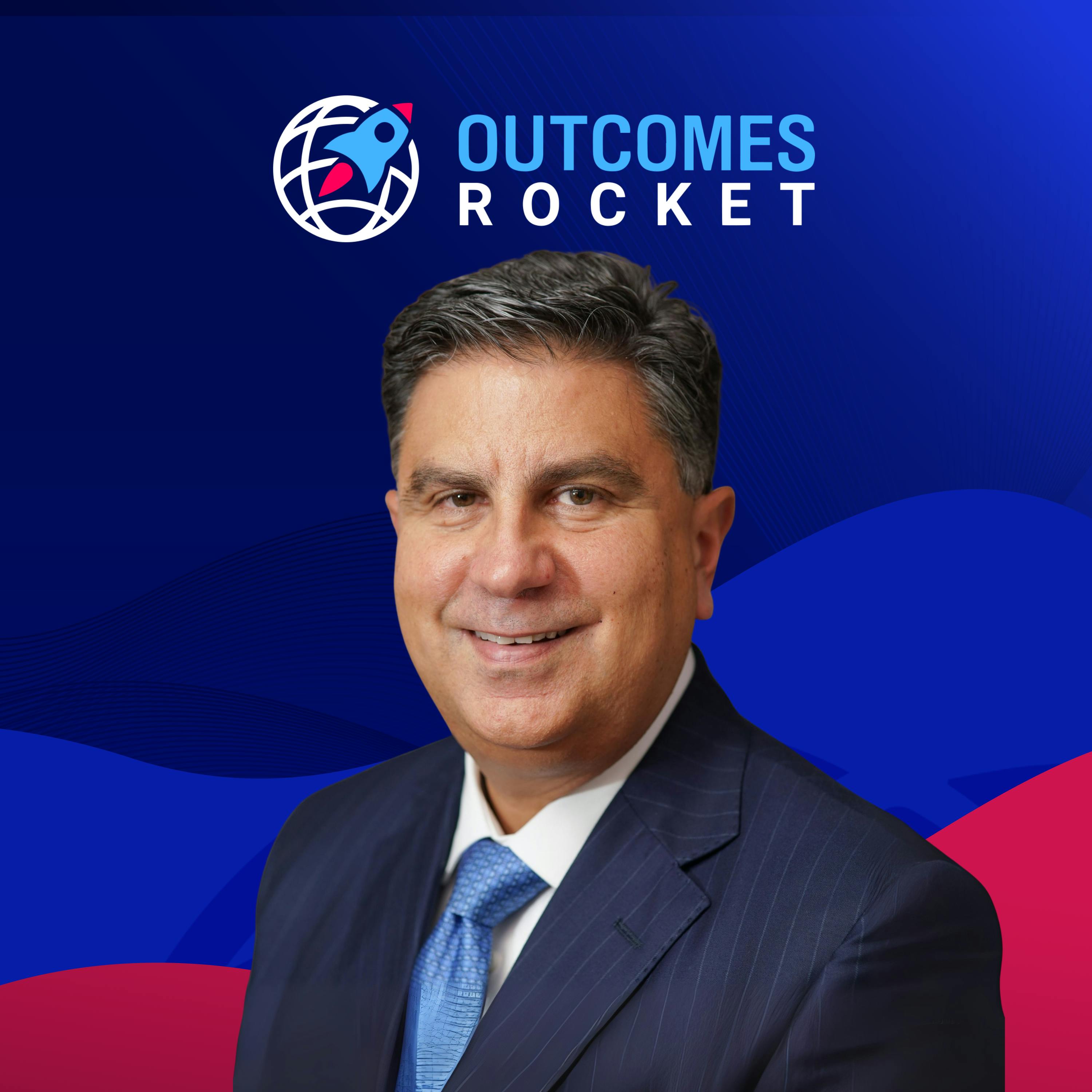
In today’s challenging healthcare landscape, only innovations that solve the industry’s most significant problems will thrive. In this episode, Peter Micca, Managing Partner at Caduceus Capital Partners, emphasized that innovation and technology are key to making healthcare more affordable, accessible, and efficient. He noted that the most successful healthcare startups address significant industry challenges, such as cost, access, and social determinants of health, while understanding the payer system and working with existing market players. Beyond AI, Peter highlighted promising areas like sensors, robotics, remote patient monitoring, and solutions targeting aging populations and loneliness. He shared that Caduceus focuses on helping proven companies scale through capital, advisory support, and deep industry relationships. His advice to healthcare founders is to clearly define the problem they solve, deeply understand their customers, and ensure their innovation directly addresses real market needs. Tune in to hear Peter Micca share how Caduceus Capital Partners is scaling game-changing technologies that are transforming cost, access, and care delivery! Resources: Connect with and follow Peter Micca on LinkedIn. Follow Caduceus Capital Partners on LinkedIn and discover their website! Check out Caduceus’s whitepaper, The Growing Investment Opportunities in Digital Healthcare Innovation, here!
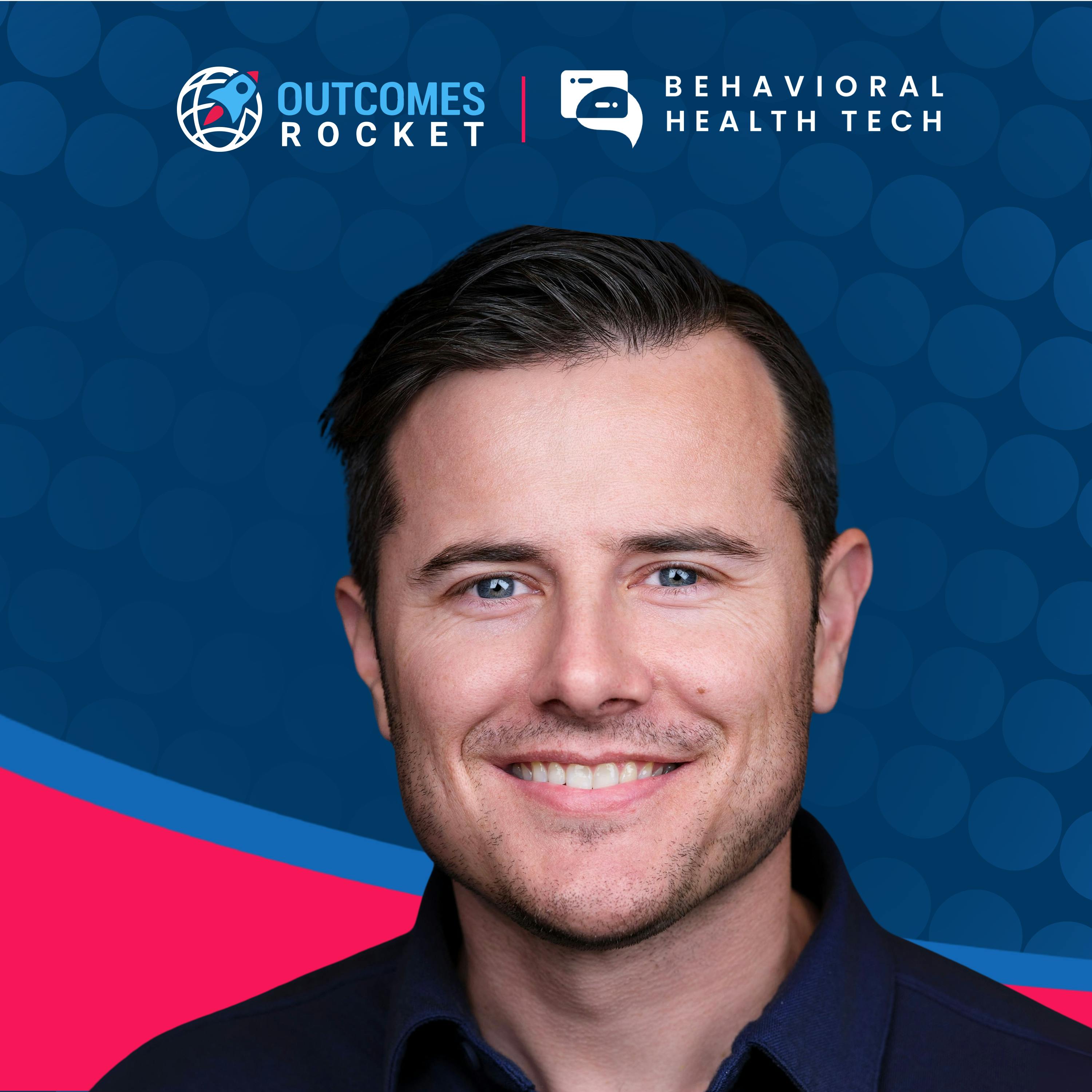
This podcast is brought to you by Outcomes Rocket, your exclusive healthcare marketing agency. Learn how to accelerate your growth by going to outcomesrocket.com A key takeaway from this interview is that the most effective path to value-based care starts with building trust, proving outcomes, and aligning your pitch with what payers already prioritize. In this episode, David Ricupero, Director of Business Development at Affect Therapeutics and Creator of the Out-of-Pocket Course: How to Contract with Payors, explains the full journey of payer contracting, from initial applications to advanced value-based agreements. He covers how to join payer networks, manage closed systems, and prepare key documents and timelines. David explores various value-based care models, illustrating how risk and complexity grow from pay-for-performance to full capitation, and highlights the importance of combining traditional applications with strategic conversations. He also offers practical tips for avoiding “payer purgatory,” identifying payer goals, and asking the right questions during shared savings negotiations. Tune in and learn how to navigate the nuances of payer-provider relationships and set up sustainable, rewarding contracts that truly expand access to care! Resources: Connect with and follow David Ricupero on LinkedIn. Follow Affect Therapeutics on LinkedIn and explore their website. Register for the “How to Contract with Payors” course here.
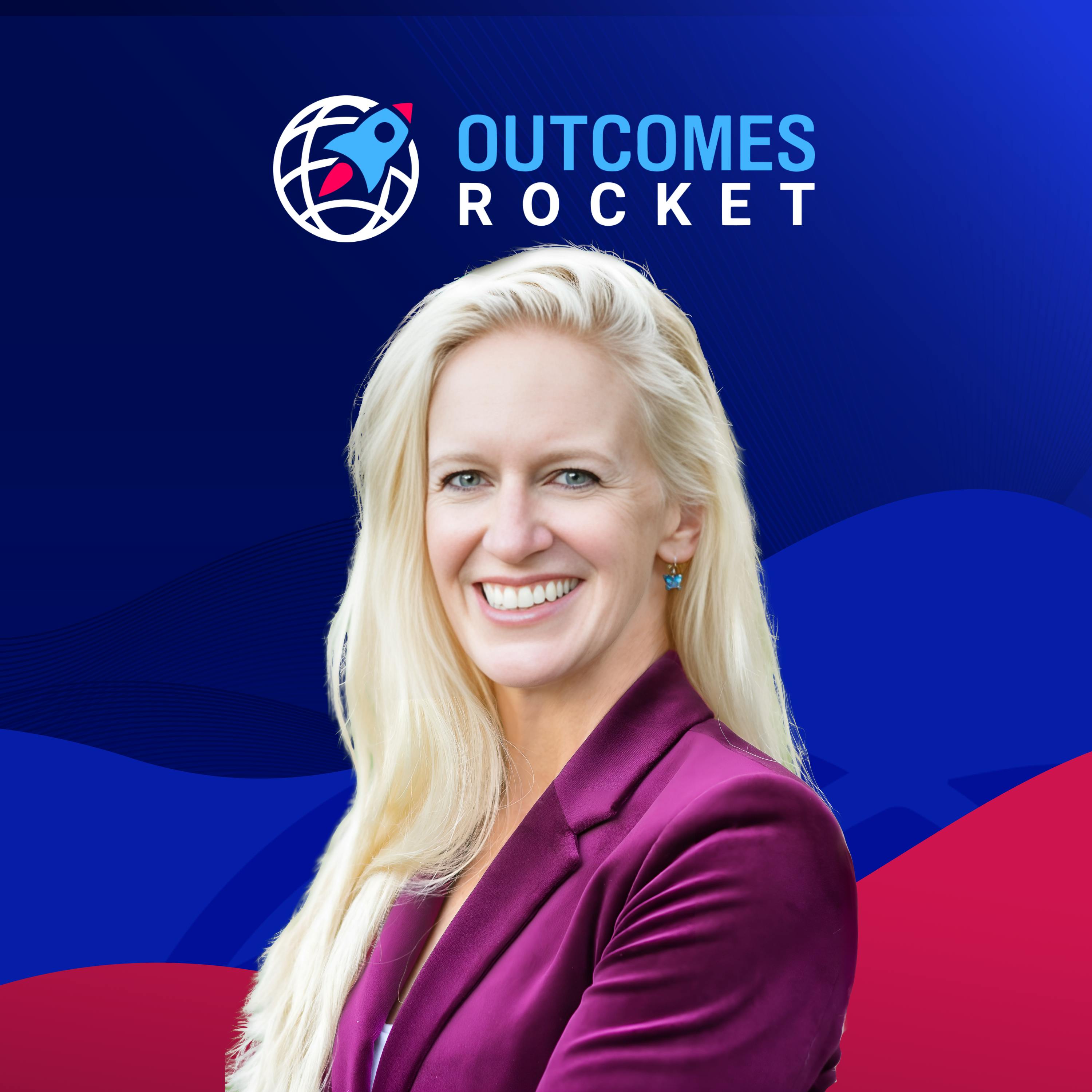
This podcast is brought to you by Outcomes Rocket, your exclusive healthcare marketing agency. Learn how to accelerate your growth by going to outcomesrocket.com One of the most urgent and overlooked innovations in healthcare today is listening deeply and differently. In this episode, Dr. Adrienne Boissy, Chief Medical Officer at Qualtrics, explores the vital role of experience management in healthcare and the systemic challenges of embedding empathy at scale. She explains how Qualtrics is leveraging AI and data from over 150 channels to transform both patient and employee experiences. The 2025 Healthcare Trends Report reveals a looming retention crisis, with nearly 30% of physicians and even more nurses considering leaving their roles. Dr. Boissy also discusses the growing adoption of AI tools like ambient listening, the tension between trust and convenience, and the ethical urgency of building emotionally safe healthcare environments. Tune in and learn how transforming human experience in healthcare starts with the simple act of listening, done right, at scale, and with empathy! Resources: Connect with and follow Dr. Adrienne Boissy on LinkedIn. Follow Qualtrics on LinkedIn and explore their website. Email Adrienne directly here. Read the 2025 Healthcare Trends Report by Qualtrics here.

This podcast is brought to you by Outcomes Rocket, your exclusive healthcare marketing agency. Learn how to accelerate your growth by going to outcomesrocket.com Addiction recovery is not a solitary journey, and support from peers can make all the difference. In this episode, Matthew Serel, CEO of You Are Accountable, Inc., shares his journey from addiction to long-term recovery and how it inspired him to build a platform offering peer support, toxicology monitoring, and care coordination. He highlights critical gaps in the recovery process, such as fragmented care and poor communication among providers. Matthew emphasizes the power of peer support rooted in lived experience, which helps individuals overcome shame and stay engaged in their recovery. He also discusses the need for collaboration across providers, payers, and peers, and how technology can enhance, not replace, human connection in addiction recovery. Tune in and learn how peer support and a balanced use of technology can reshape the future of addiction care! Resources: Connect with and follow Matthew Serel on LinkedIn. Email Matthew Serel here. Follow You Are Accountable, Inc. on LinkedIn and explore their website.

This podcast is brought to you by Outcomes Rocket, your exclusive healthcare marketing agency. Learn how to accelerate your growth by going to outcomesrocket.com Even with insurance, nearly half of Americans delay care simply because they can’t find a doctor in their network. In this episode, Eric Demers, CEO of Madaket Health, talks about the growing issue of healthcare access and cost in the U.S., even for insured individuals. Madaket commissioned a national survey to better understand how bad provider data impacts patients, finding that nearly half of Americans delay care because they can’t find in-network providers, especially millennials, who are more likely to seek alternative care routes. Demers explains that the root cause is outdated, inaccurate, and poorly synchronized provider data, worsened by the lack of national standards and inconsistent systems across payers and providers. Even vertically integrated health systems suffer from internal data mismatches. Madaket Health aims to fix this by acting as a data bridge between payers and providers, leveraging its platform, used by over 80% of U.S. providers, to keep information up-to-date and aligned, improving directories and patient access to care. Tune in to learn how broken provider data is quietly undermining healthcare access and what’s being done to fix it! Resources: Connect with and follow Eric Demers on LinkedIn. Follow Madaket Health on LinkedIn and visit their website!

This podcast is brought to you by Outcomes Rocket, your exclusive healthcare marketing agency. Learn how to accelerate your growth by going to outcomesrocket.com Investing in care infrastructure and mental health access is not just compassionate, it's foundational to long-term systemic change. In this episode, Brittney Riley Gavini, the Director of Investments at Pivotal Ventures, discusses how targeted investment strategies are unlocking real progress in youth mental health, family care, and women’s empowerment. She explains how her career evolved from startups to mission-driven venture capital, and how her team supports both philanthropic and for-profit initiatives that close care gaps. Brittney highlights investments in innovative companies and shares the importance of funding diverse founders and fund managers to reshape the innovation pipeline, especially in mental health and financial access. She also acknowledges challenges in youth mental health startups like provider shortages and complex engagement pathways. Lastly, Brittney offers advice for startups pitching investors: make it a meaningful, generative conversation, not just a transaction. Tune in and learn how mission-aligned investing is reshaping behavioral health, one bold bet at a time! Resources: Connect with and follow Brittney Riley Gavini on LinkedIn. Follow Pivotal Ventures on LinkedIn and explore their website.
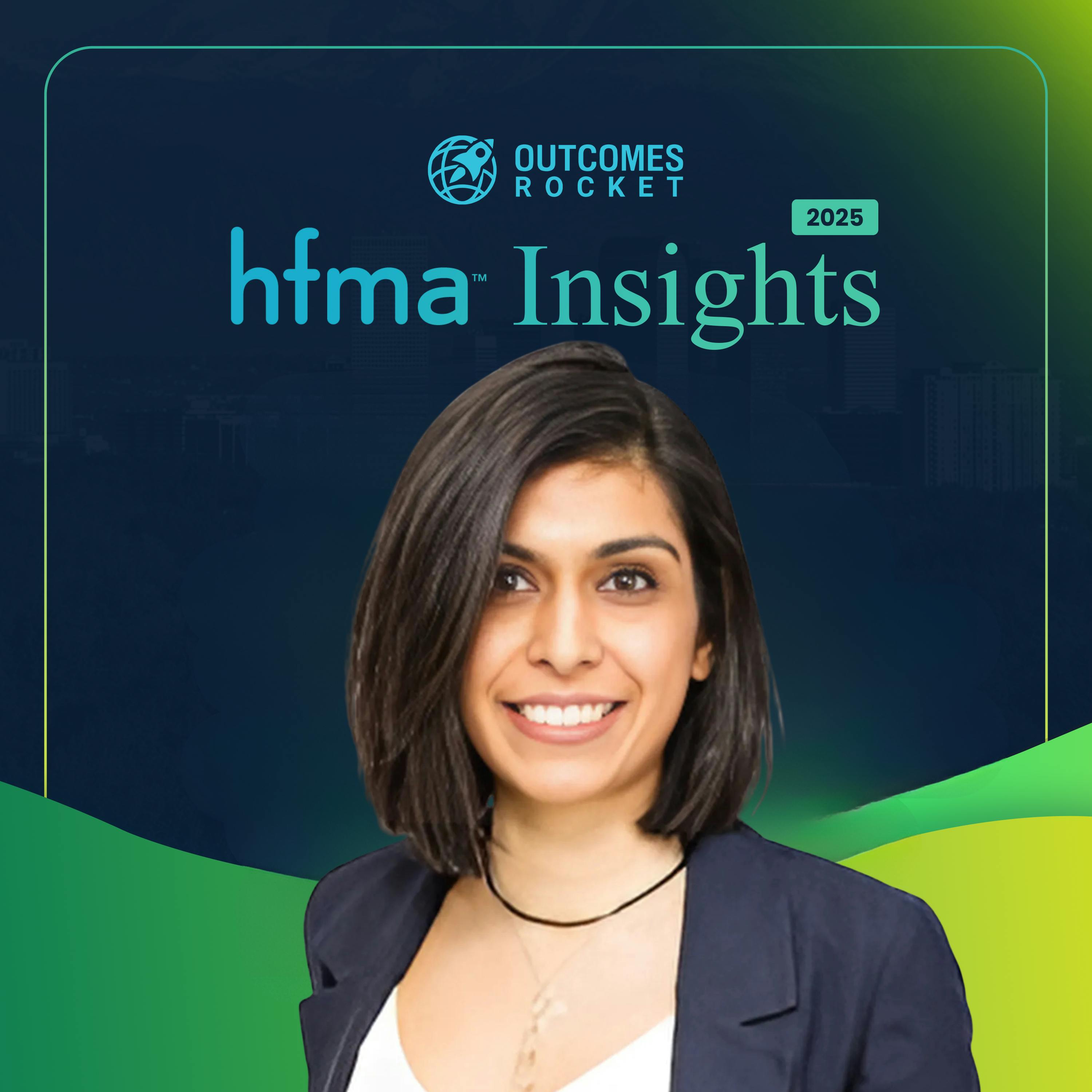
This podcast is brought to you by Outcomes Rocket, your exclusive healthcare marketing agency. Learn how to accelerate your growth by going to outcomesrocket.com Voice AI is no longer a futuristic concept, it’s already transforming healthcare operations by automating repetitive administrative calls, driving real ROI, and reshaping workforce strategy. In this episode, Sneh Patel, CEO of Delfino AI, explores how voice AI is transforming outbound administrative calls by fully automating repetitive payer and provider interactions. She explains how their technology handles entire call journeys end-to-end, freeing up staff for higher-value work. Beyond cost savings, Sneh emphasizes the ability to scale operations without hiring and notes a shift in the industry as customers grow more comfortable with AI-driven interactions. From her HFMA conversations, she observes that CFOs are increasingly focused on ROI, and encourages leaders to share their challenges, as today’s tech can often build solutions to meet them. Tune in and learn how AI is reshaping administrative operations, how ROI is leading the conversation, and why now is the time to act boldly! Resources: Connect with and follow Sneh Patel on LinkedIn. Follow Delfino on LinkedIn and explore their website! Email Sneh directly here.
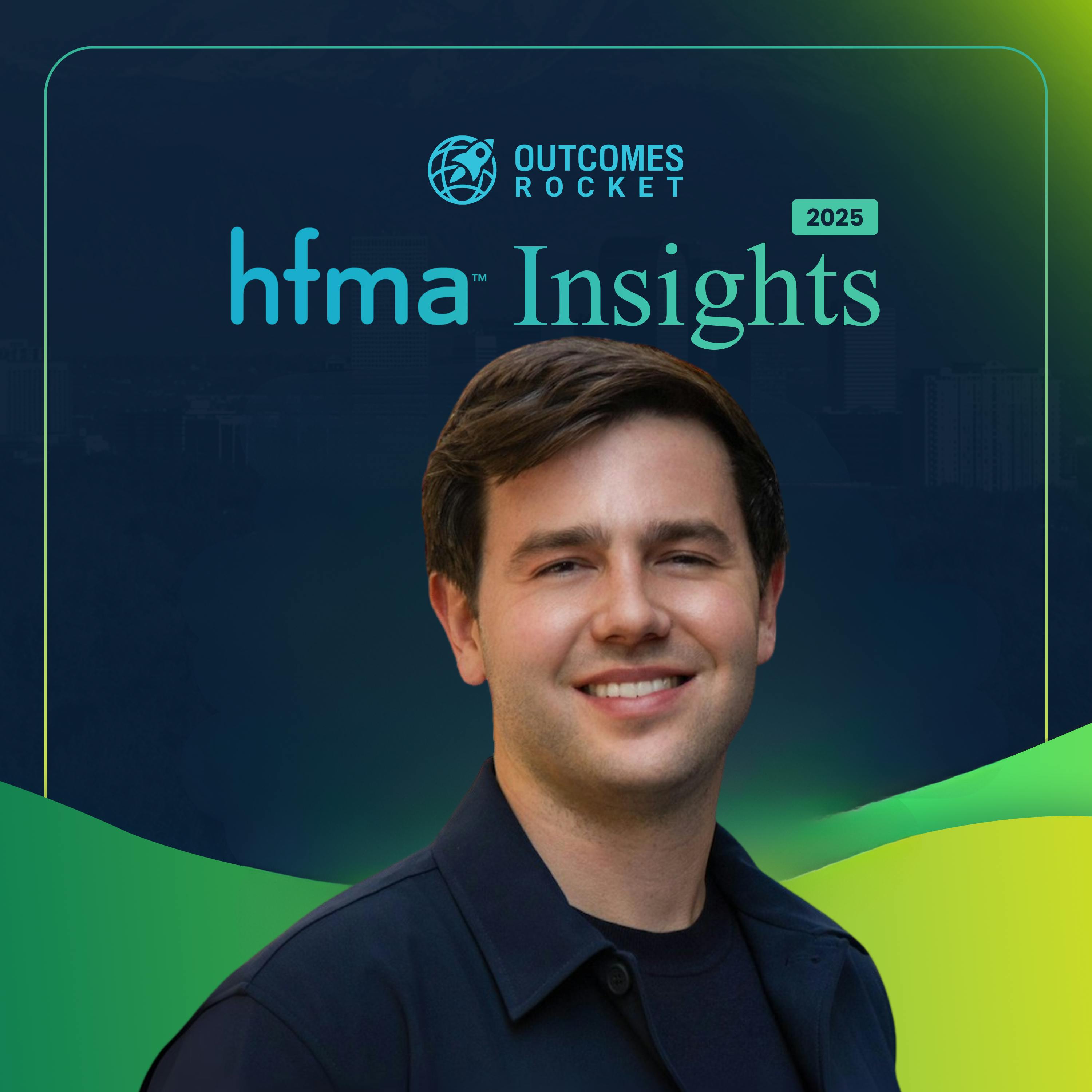
This podcast is brought to you by Outcomes Rocket, your exclusive healthcare marketing agency. Learn how to accelerate your growth by going to outcomesrocket.com The future of healthcare billing lies in human-AI collaboration that speeds up results without sacrificing quality. In this episode, Sam Schwager, Co-founder and CEO of SuperDial, shares how voice AI is reshaping revenue cycle management (RCM) by automating routine phone calls and boosting team productivity. With a human-in-the-loop model, SuperDial delivers immediate value while learning and improving over time. Sam highlights the growing demand for fast ROI from AI tools and the potential of AI-to-AI communication via text protocols like HTTP to further streamline operations. As healthcare continues to spend heavily on administrative tasks, SuperDial has helped claims teams become up to four times more productive by handling calls for prior authorizations and denial follow-ups. Tune in and learn how voice AI is changing healthcare operations faster, smarter, and more cost-effectively than ever! Resources: Connect with and follow Sam Schwager on LinkedIn. Follow SuperDial on LinkedIn and explore their website! Email Sam directly here.
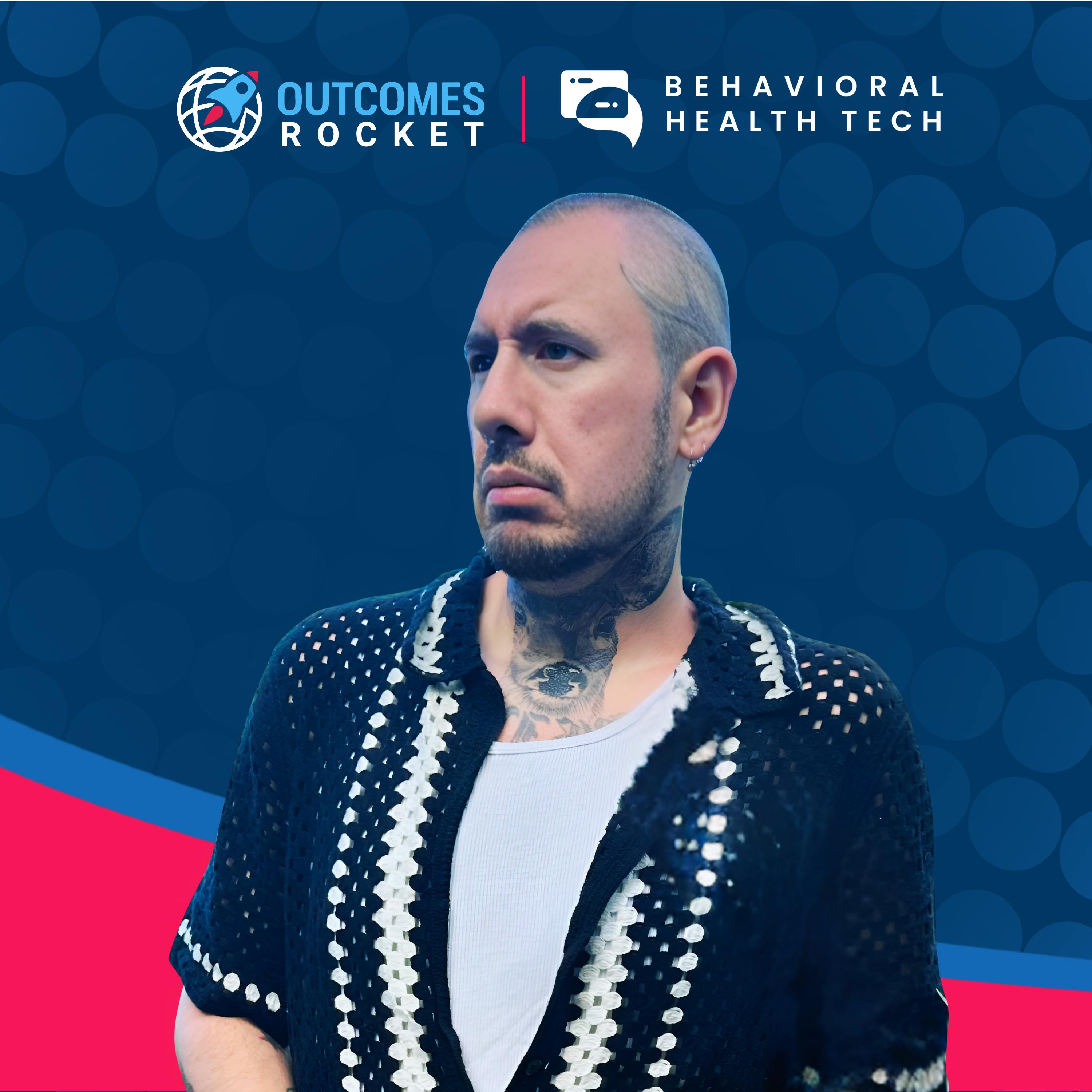
This podcast is brought to you by Outcomes Rocket, your exclusive healthcare marketing agency. Learn how to accelerate your growth by going to outcomesrocket.com The most powerful solutions in behavioral health often come not from professionals, but from peers who’ve walked the same path. In this episode, Arc Telos Saint Amour (they/them), Executive Director of Youth MOVE National, shares their lived experience navigating child welfare, houselessness, the justice system, and behavioral health from birth. As a queer, trans, disabled person of color, Tay reflects on how their identity and history shaped their lifelong mission to transform care for systems-impacted youth. They explain how peer support, rooted in trust, agency, and love, offers a life-saving alternative to broken institutions, and push back on narratives that blame social media, arguing it can be a vital source of safety and connection for marginalized young people. Tay also challenges widespread misunderstandings about peer support, its grassroots origins, its essential equity lens, and how it's often co-opted or commodified, offering a bold call to see youth not as problems to fix, but as people to trust, support, and uplift. Tune in and learn what it means to truly listen to youth, challenge systems, and support healing through the power of peers! Resources: Connect with and follow Arc Telos Saint Amour (they/them) on LinkedIn. Follow Youth MOVE National on LinkedIn and explore their website. Email Tay directly here.
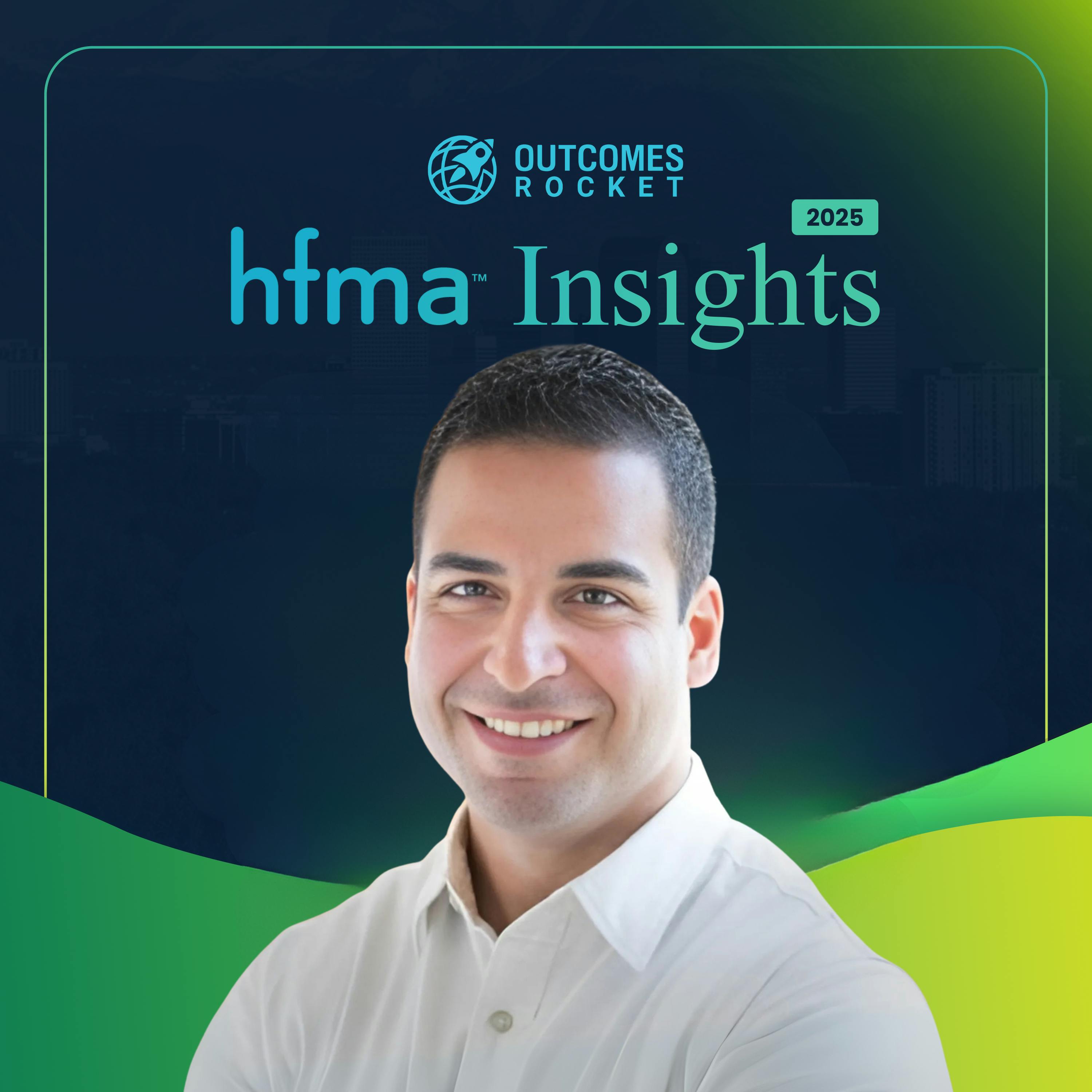
This podcast is brought to you by Outcomes Rocket, your exclusive healthcare marketing agency. Learn how to accelerate your growth by going to outcomesrocket.com Proactive, AI-driven tools can drastically reduce administrative burdens in healthcare while improving access for patients who need it most. In this episode, Pedram Afshar, founder and CEO of Escher Health, shares how his journey from physician to technologist began after losing a patient due to delays in Medicaid enrollment. Motivated by that tragedy, he built Escher, a platform inspired by M.C. Escher’s seamless designs to eliminate care gaps and administrative inefficiencies. At HFMA, he discusses the growing role of AI in transforming healthcare from reactive to proactive, especially in streamlining financial workflows. Escher’s self-service tools, accessible via smartphones, kiosks, or iPads, automate 90% of the enrollment process, easing burdens on staff and improving outcomes. Tune in and learn how smarter systems are transforming Medicaid enrollment and making healthcare more efficient, accessible, and humane! Resources: Connect with and follow Pedram Afshar on LinkedIn. Follow Escher Health on LinkedIn and explore their website! Email Pedram directly here.
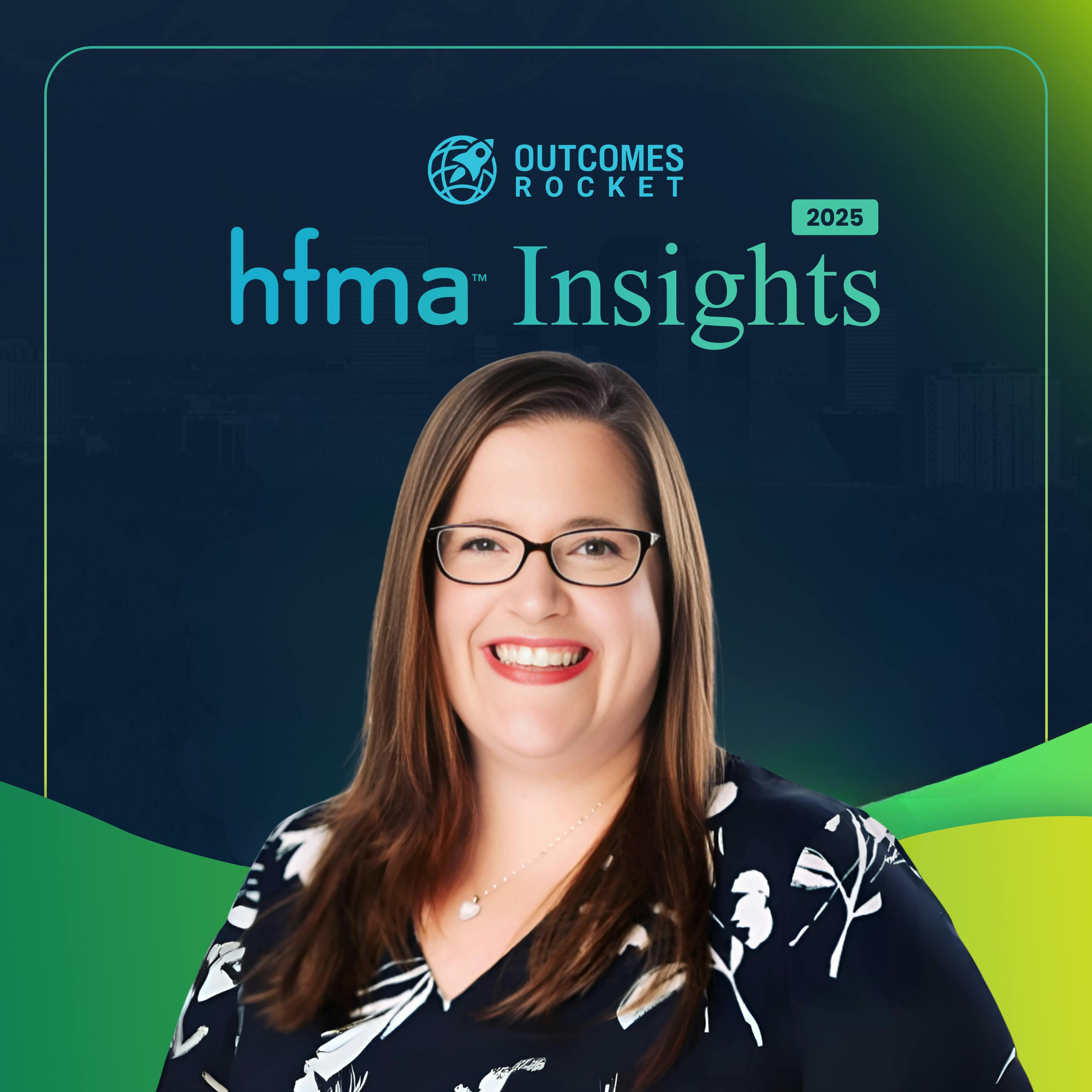
This podcast is brought to you by Outcomes Rocket, your exclusive healthcare marketing agency. Learn how to accelerate your growth by going to outcomesrocket.com What if your healthcare operations could adapt as fast as the rules keep changing? In this episode, Natalie Van Baale, Chief Operations Officer at BRSi, discusses the widespread challenges healthcare providers face across commercial, federal, and Medicaid sectors, especially in coding, compliance, documentation, and payer regulations. She emphasizes the importance of collaboration across departments to tackle evolving payer rules and data quality issues. While AI presents promising opportunities to improve efficiency and collections, Natalie stresses the continued need for experienced professionals to guide AI tools effectively. BRSi stands out for its passionate, long-tenured team, flexible proprietary software, and ability to quickly adapt to regulatory and system changes, offering custom solutions where larger systems often lag. Tune in as Natalie Van Baale of BRSi shares how their agile, expert-driven approach is helping healthcare organizations overcome today’s toughest operational and reimbursement challenges! Resources: Connect with and follow Natalie Van Baale on LinkedIn. Follow BRSi on LinkedIn and visit their website!
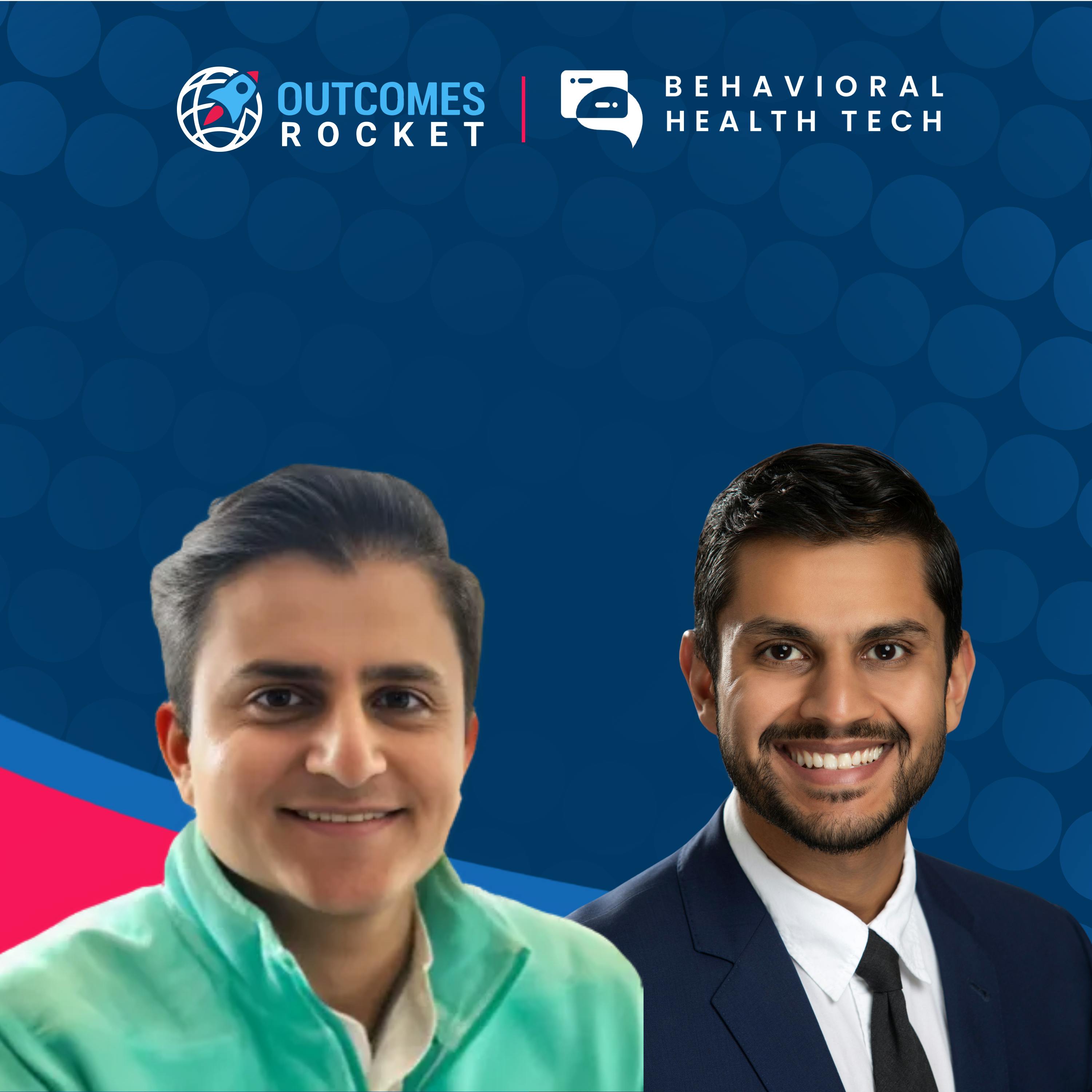
This podcast is brought to you by Outcomes Rocket, your exclusive healthcare marketing agency. Learn how to accelerate your growth by going to outcomesrocket.com Delivering effective, modern psychiatric care demands clinical excellence, technological innovation, and a deep understanding of patient context. In this episode, Dr. Arpan Parikh, Chief Medical Officer of SOL Mental Health, and Dr. Amit Parikh, Chief Medical Officer of Brave Health, reflect on how their upbringing, medical training, and deep family roots in psychiatry shaped their professional paths. They explore how the role of the Chief Medical Officer has evolved to include not just clinical quality, but also access, patient-centered workflows, and collaboration with payers. The brothers take a close look at the fragmentation in mental health care and emphasize the value of integrated therapy and psychiatry models, seamless patient experiences, and creating a supportive workplace for clinicians. They also discuss how virtual care can meet the needs of Medicaid populations facing barriers like housing insecurity and transportation challenges, while stressing the importance of leadership training, cultural change in the field, and careful use of technology like AI and ambient scribes to enhance patient-centered care. Tune in and learn how two leaders are reshaping behavioral health by blending compassion, systems thinking, and clinical rigor to drive meaningful change! Resources: Connect with and follow Arpan Parikh on LinkedIn. Follow SOL Mental Health on LinkedIn and explore their website. Connect with and follow Amit Parikh on LinkedIn. Learn more about Brave Health on LinkedIn and visit their website.
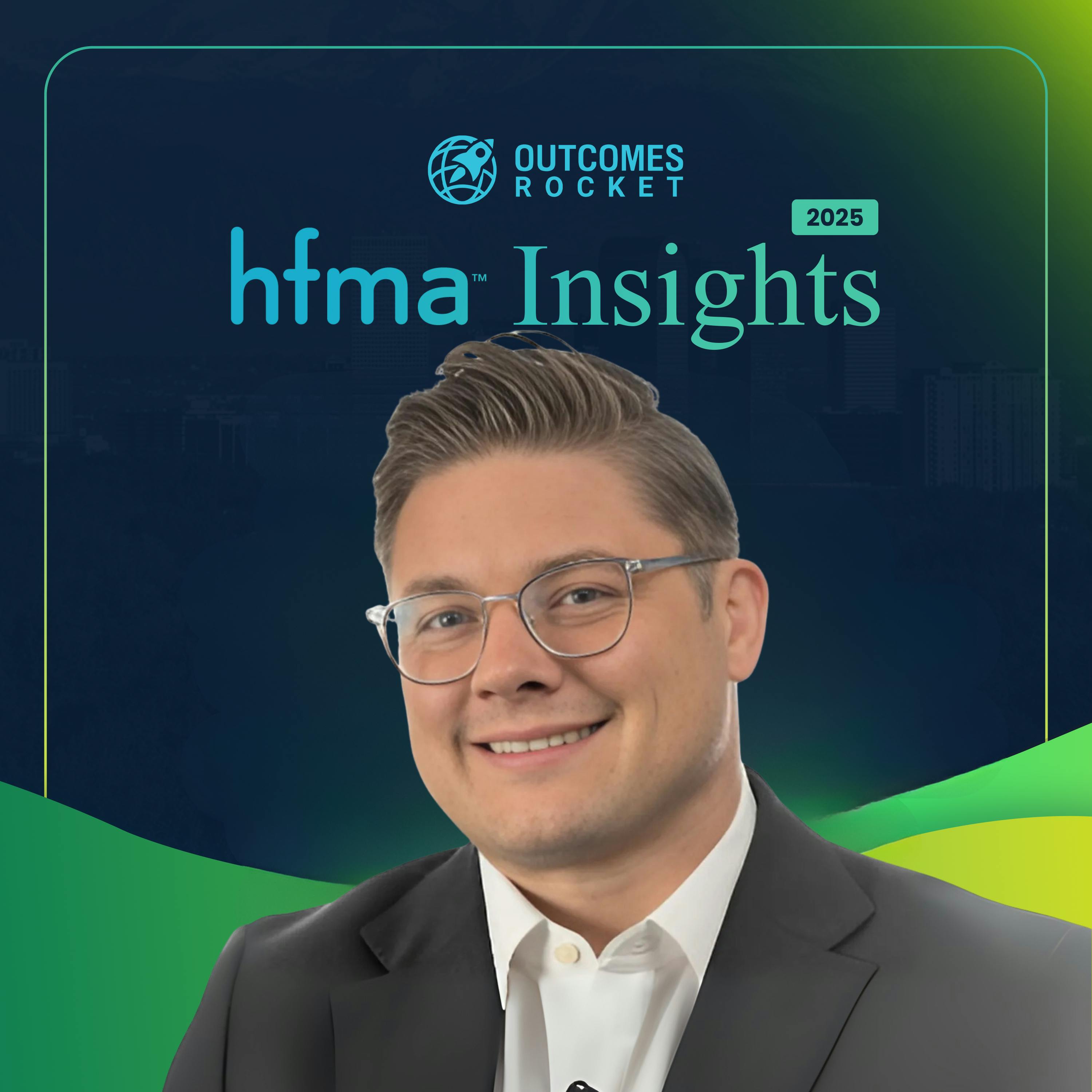
This podcast is brought to you by Outcomes Rocket, your exclusive healthcare marketing agency. Learn how to accelerate your growth by going to outcomesrocket.com Patients are now the fastest-growing payer group in healthcare, and providers must adapt their financial strategies accordingly. In this episode, Dugan Winkie, Head of Commercial Strategy for Cedar, addresses the growing healthcare affordability crisis, fueled by the rise of self-pay patients and high-deductible health plans. He introduces Cedar’s AI agent, Kora, which helps reduce billing-related inbound calls by up to 30% through personalized, data-driven support that integrates with payors, HSAs, Medicaid, and more. Dugan stresses that as patients bear more of the financial responsibility, health systems must move beyond generic portals and adopt tailored billing strategies. He advises CFOs to view patients as key financial stakeholders and to partner with AI vendors who can prove real-world impact, not just promise innovation. Tune in and learn how smarter financial engagement and actionable AI can help health systems survive tighter margins and better serve their patients! Resources: Connect with and follow Dugan Winkie on LinkedIn. Follow Cedar on LinkedIn and explore their website! Listen to Dugan’s previous episode on our podcast here!
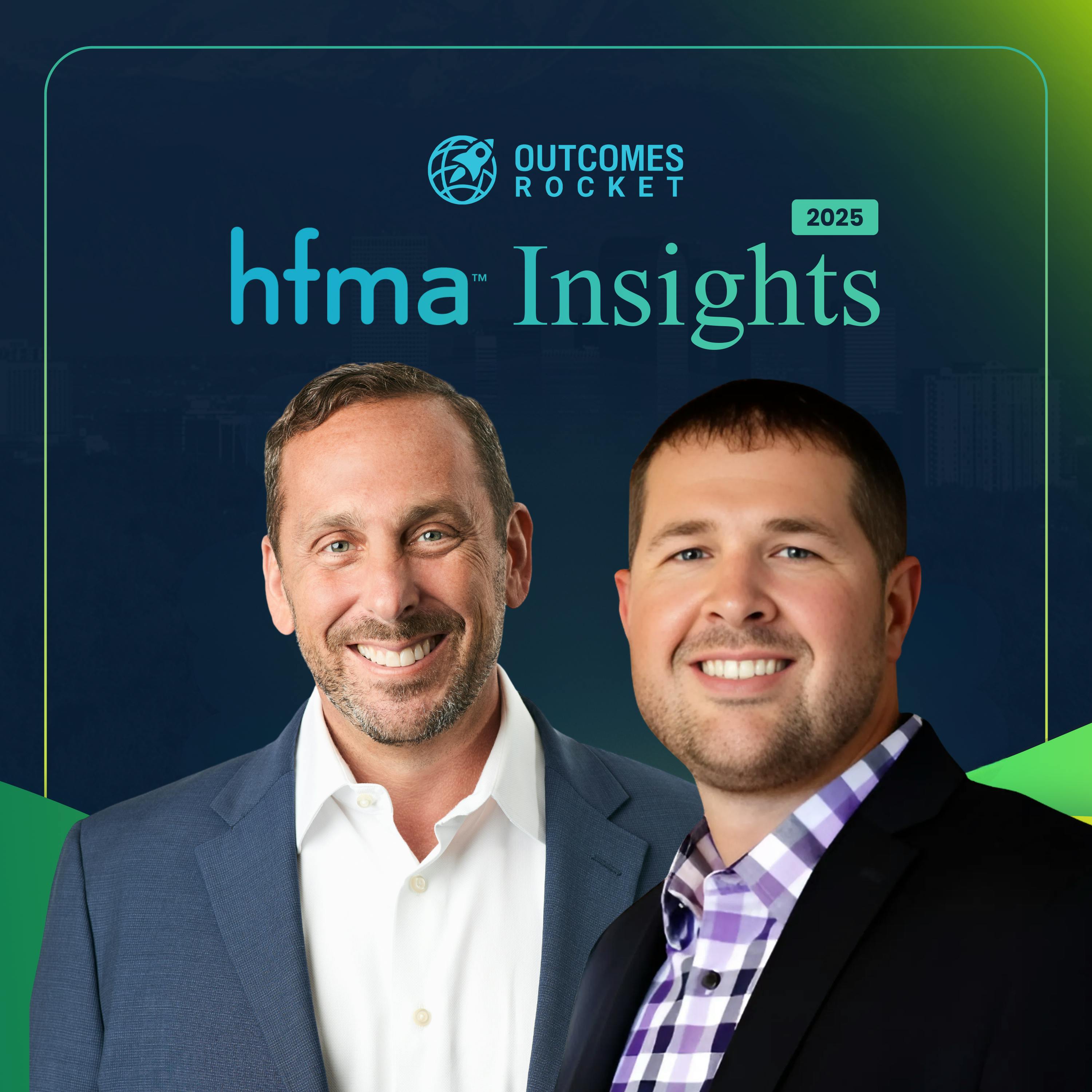
This podcast is brought to you by Outcomes Rocket, your exclusive healthcare marketing agency. Learn how to accelerate your growth by going to outcomesrocket.com What if your health system is quietly bleeding millions each year from outdated apps you didn’t even know were still running? In this episode, Jason Rose, CEO at Clearsense, and Kevin Erdal, Senior Vice President at Nordic Consulting Partners, talk about how health systems can reduce costs by eliminating outdated, redundant, and underused “zombie apps.” These applications pose cybersecurity risks and waste millions annually, but through active archiving and strategic governance, Clearsense and Nordic help organizations identify and safely retire them while preserving necessary data access. This cost-saving approach not only improves operational efficiency but also frees up funds for innovation and future technology investments. Their advice to healthcare leaders: start with a quick assessment to uncover hidden savings. Tune in to learn how health systems can uncover hidden savings, reduce cybersecurity risk, and fund innovation by tackling zombie apps! Resources: Connect with and follow Jason Rose on LinkedIn. Follow Clearsense on LinkedIn and explore their website. Connect with and follow Kevin Erdal on LinkedIn. Follow Nordic Consulting Partners on LinkedIn and discover their website.
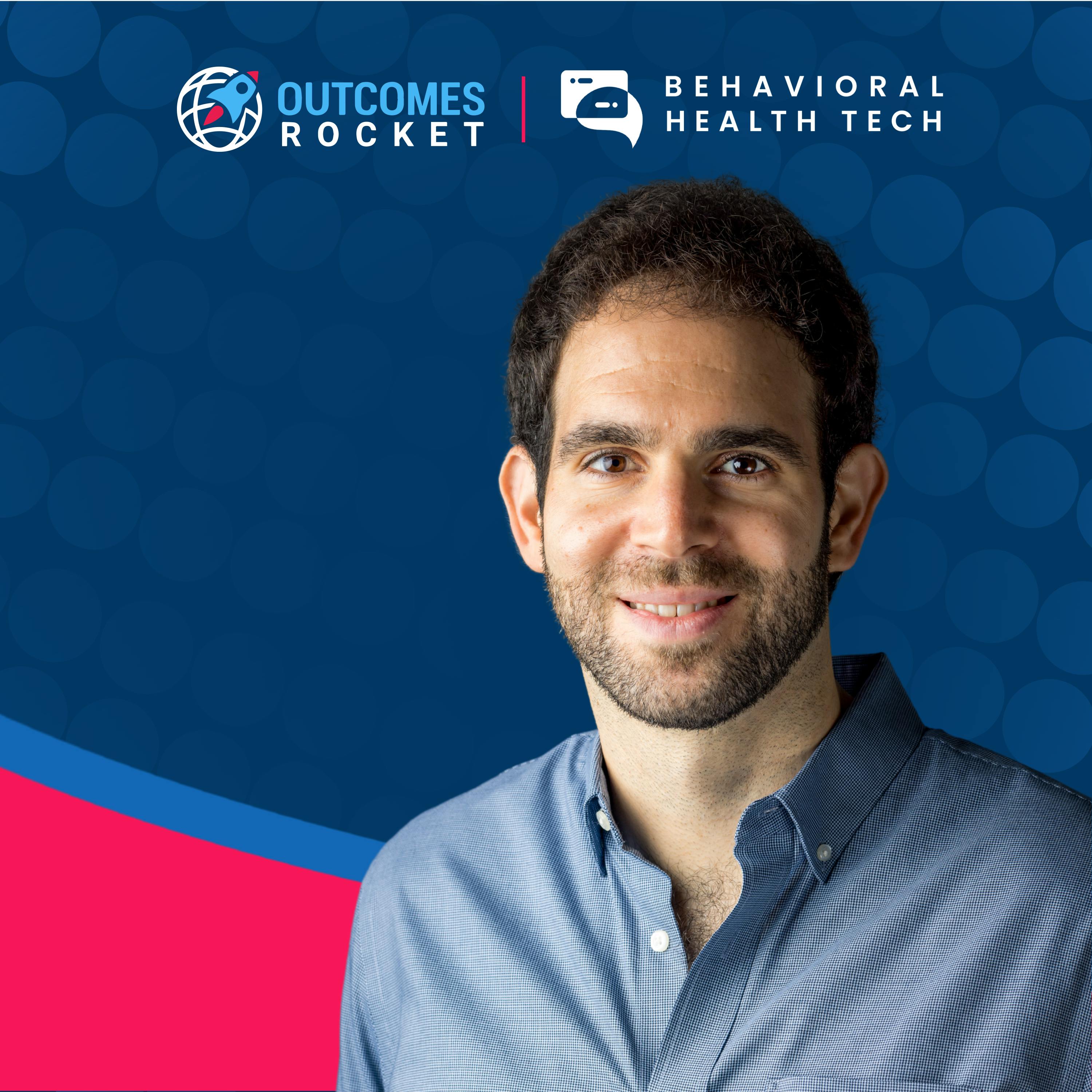
This podcast is brought to you by Outcomes Rocket, your exclusive healthcare marketing agency. Learn how to accelerate your growth by going to outcomesrocket.com Video introductions are a powerful tool to enhance the therapeutic alliance even before therapy begins. In this episode, Daniel Sorochkin, Founder and CEO of TakeOne, explores the challenges therapy platforms face, such as poor therapist-client matches, high dropout rates, and awkward first sessions. He explains how traditional therapist profiles often fall short, lacking the depth needed to build trust and connection. Daniel makes the case for therapist introduction videos as a powerful tool to improve retention and engagement, while also acknowledging the barriers to adoption like cost, complexity, and therapist hesitance. TakeOne solves these issues with an automated, scalable video solution, and Daniel emphasizes that despite advances in AI, genuine human connection remains central to effective therapy. Tune in and learn how incorporating personalized video content transforms client-therapist interactions, reducing no-shows and dramatically improving client satisfaction and retention! Resources: Connect with and follow Daniel Sorochkin on LinkedIn. Follow TakeOne on LinkedIn and explore their website.
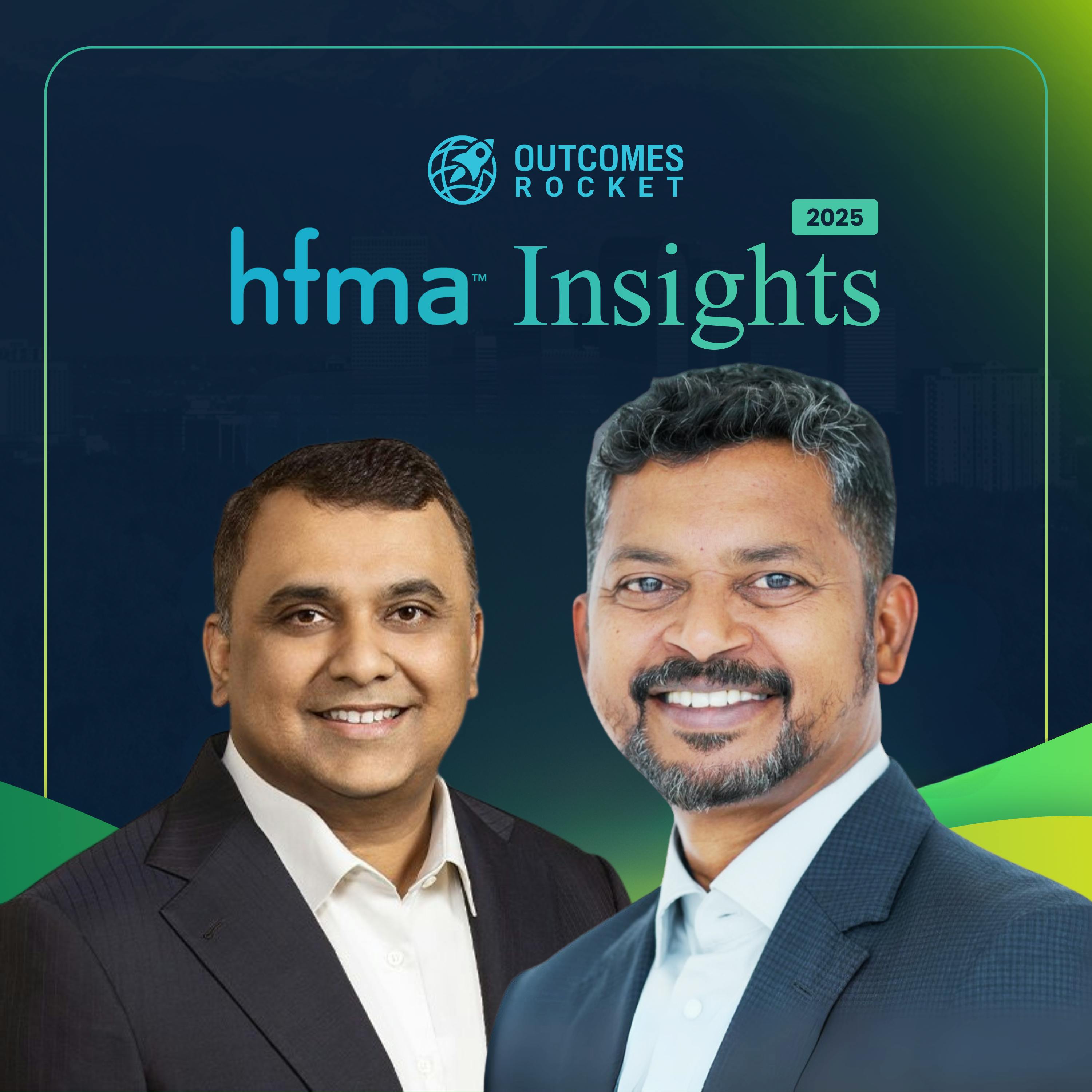
This podcast is brought to you by Outcomes Rocket, your exclusive healthcare marketing agency. Learn how to accelerate your growth by going to outcomesrocket.com The future of healthcare revenue cycle management is modular, AI-driven, and human-supported. In this episode, Access Health’s Shaji Ravi, CEO, and Kumar Shwetabh, COO, explore their innovative Revenue Cycle Management (RCM) strategy, powered by Smarter Technologies, a fusion of modular services (Smarter Access), clinical insights (SmarterDx), and AI automation (Thoughtful.ai). Drawing on trends from the HFMA conference, they highlight a growing industry shift away from rigid end-to-end models toward more adaptable, AI-enabled solutions, driven by the need to reduce rising administrative costs. They explain how Smarter Technologies leverages "agentic AI" alongside human-in-the-loop systems to automate roughly 80% of healthcare administration tasks, enhancing accuracy and efficiency while lowering operational expenses. Their ultimate goal is to resolve persistent issues like delayed payments and claim denials by proactively countering payer-driven AI strategies. Tune in and learn how Smarter Technologies is transforming healthcare revenue management! Resources: Connect with Shaji Ravi and follow him on LinkedIn. Follow and connect with Kumar Shwetabh on LinkedIn. Follow Access Healthcare Services on LinkedIn and explore their website. Learn more about Smarter Technologies on their LinkedIn and visit their website.
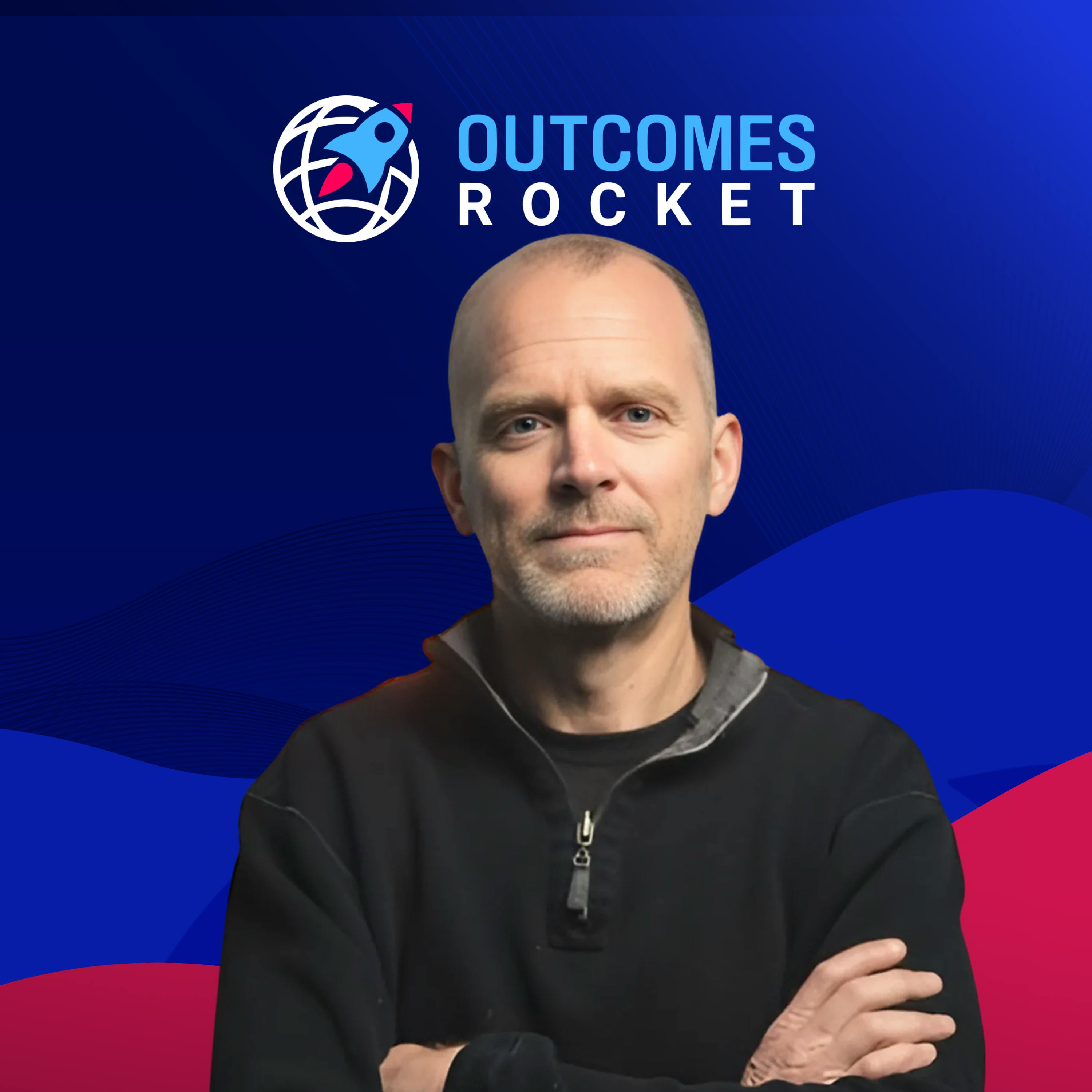
This podcast is brought to you by Outcomes Rocket, your exclusive healthcare marketing agency. Learn how to accelerate your growth by going to outcomesrocket.com Open-sourcing healthcare contracting and data infrastructure can unlock massive cost savings while improving outcomes. In this episode, Dave Chase, board president of Nautilus Health Institute and founder of Health Rosetta, dives into the major shift happening in employer-sponsored healthcare. He explains why he gave away $4 million worth of intellectual property to launch Nautilus, with the goal of decentralizing control from entrenched incumbents and empowering employers. Thousands of organizations are now using these models to achieve consistent 20–50% cost reductions while improving care quality, aided by real-time claims data and predictive analytics. Dave also shares his collaboration with Mark Cuban to release hospital contracts and tells inspiring stories, like how one Alabama manufacturer used healthcare savings to fund employee scholarships, illustrating the rise of a “healthcare ownership economy.” Tune in and learn how open-source tools, data access, and local innovation are rewriting the rules of employer health benefits in America! Resources: Connect with and follow Dave Chase on LinkedIn. Follow Health Rosetta on LinkedIn and explore their website. Learn more about Nautilus Health Institute here. Listen to Dave’s previous interview on the podcast here! Buy Dave’s book Relocalizing Health here. Find out more about this year’s RosettaFest here. Register for this year’s RosettaFest here
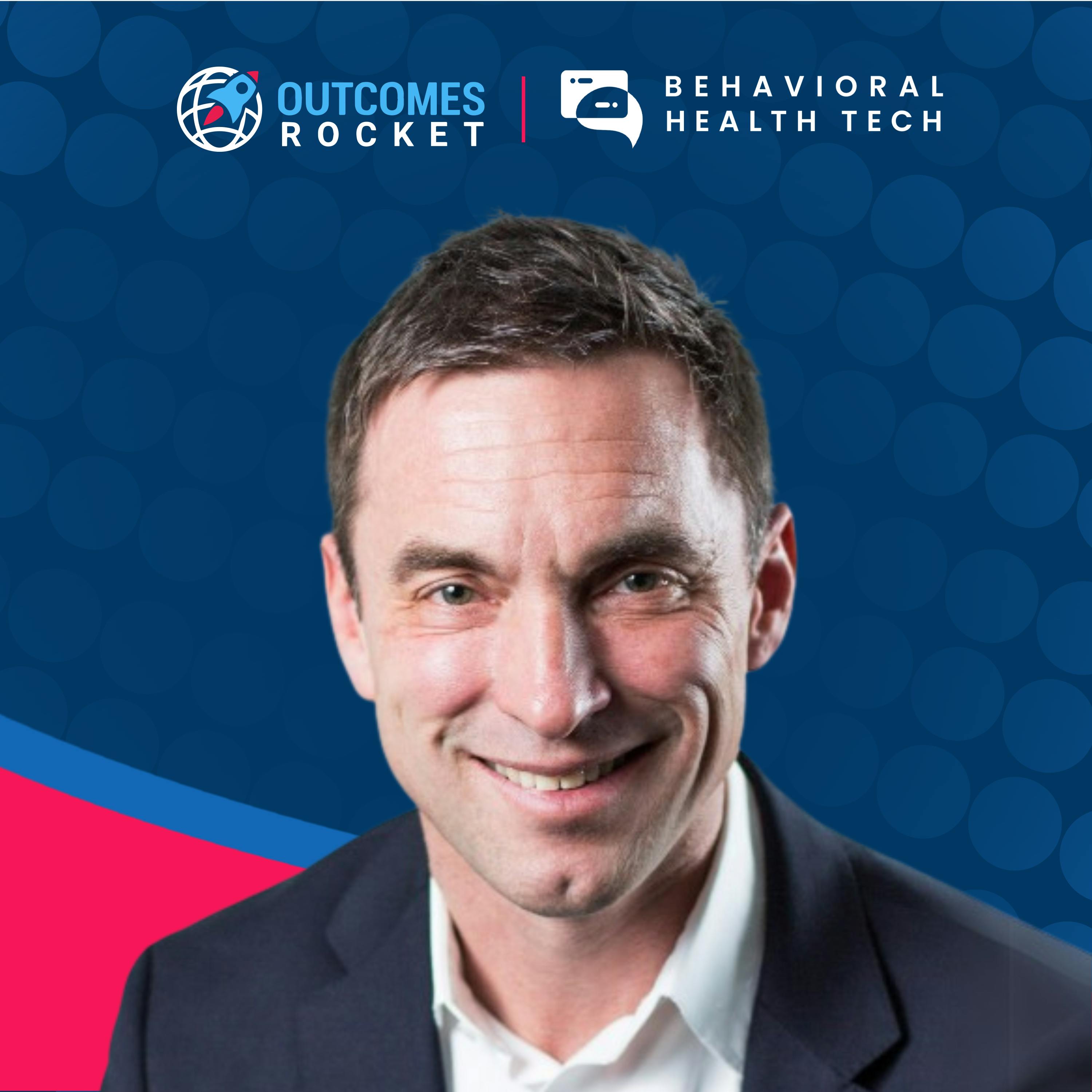
This podcast is brought to you by Outcomes Rocket, your exclusive healthcare marketing agency. Learn how to accelerate your growth by going to outcomesrocket.com Leveraging technology and AI in behavioral healthcare can bridge access gaps, enhance person-centered care, and promote health equity through innovative, community-focused solutions. In this episode, Wes Williams, VP and Chief Information Officer at WellPower, shares insights on leveraging technology and AI to address gaps in behavioral healthcare. He discusses WellPower's commitment to health equity and community-focused solutions, emphasizing the importance of personalized care and human-centered design. Wes highlights how digital tools, like AI-driven digital scribes, can optimize workflows and deliver more tailored care to individuals. He also explores collaboration opportunities for innovative solutions to expand access to mental health services. Tune in to discover how technology and AI are revolutionizing behavioral healthcare. Resources: Connect with and follow Wes Williams on LinkedIn. Follow WellPower on LinkedIn and explore their website.

This podcast is brought to you by Outcomes Rocket, your exclusive healthcare marketing agency. Learn how to accelerate your growth by going to outcomesrocket.com Innovative technology solutions designed for behavioral health providers are transforming the way care is delivered, making it more efficient and impactful. In this episode, Ben Lawrence, Director of Behavioral Health Clinic Operations, and Dr. Ben Kurian, Executive Medical Director of Risk Identification and Outreach, from Health Care Service Corporation (HCSC), discuss the RIO program’s data-driven, multidisciplinary approach to behavioral and medical health comorbidities. They tackle the challenges of opioid management and untreated depression. Lawrence and Dr. Kurian address outreach and member engagement hurdles, exploring digital methods while adhering to privacy laws. Their active partnership with the American College of Surgeons promotes non-opioid pain management strategies, demonstrating their commitment to evolving care. Tune in to learn how HCSC's innovative digital solutions are shaping the future of behavioral health care, improving provider engagement, and enhancing patient outcomes. Resources: Connect with and follow Dr. Ben Kurian on LinkedIn. Connect with and follow Ben Lawrence on LinkedIn. Follow Health Care Service Corporation on LinkedIn and explore their website.
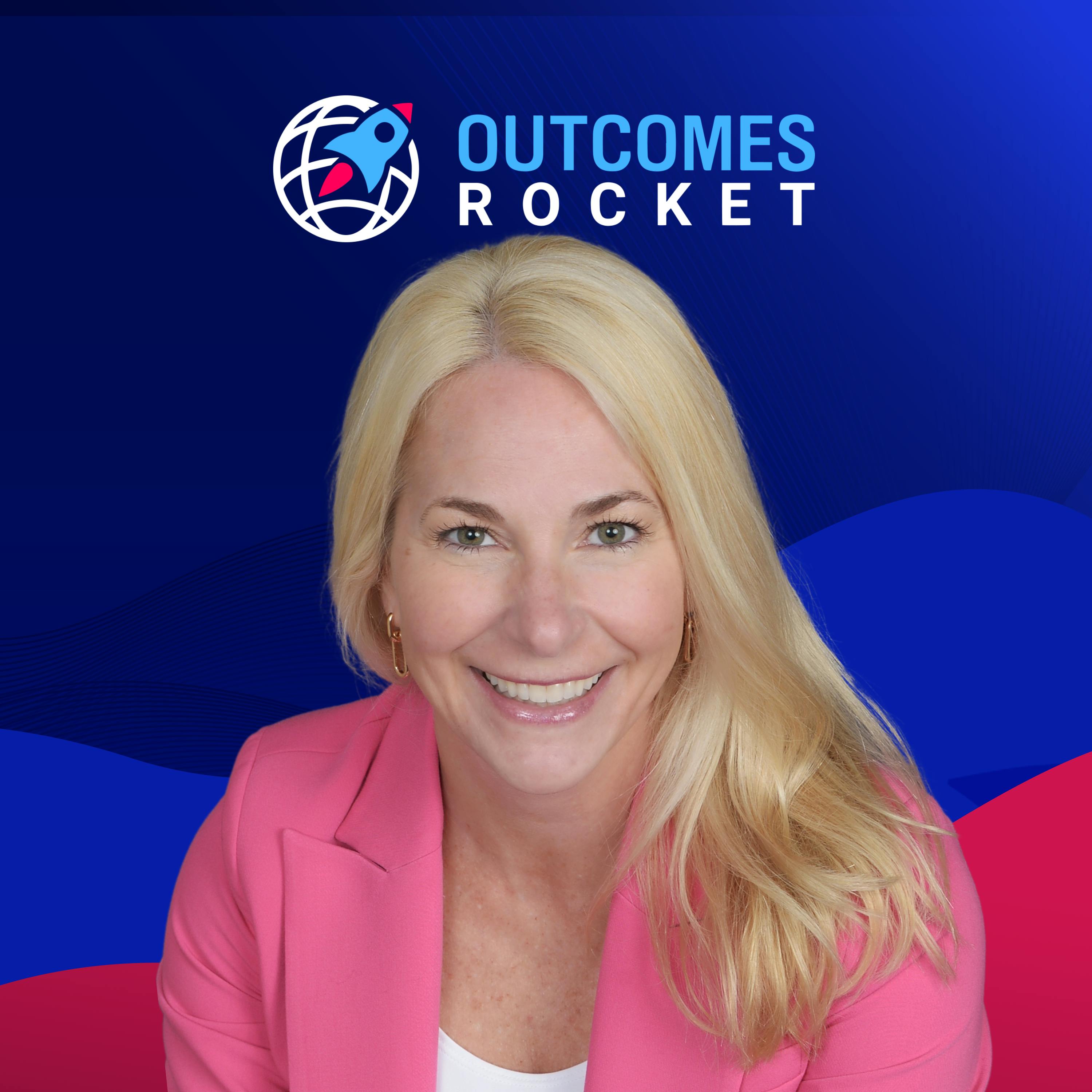
This podcast is brought to you by Outcomes Rocket, your exclusive healthcare marketing agency. Learn how to accelerate your growth by going to outcomesrocket.com Women's health, long under-researched and underfunded, urgently needs a comprehensive overhaul and recognition beyond reproductive care. In this episode, Kristine Cecchetti, Senior Product Manager for Women’s Health Strategy at Evernorth Health Services, discusses the fragmented state of women’s healthcare in 2025 and emphasizes that over 60% of all conditions disproportionately affect women, including issues like cardio-diabesity and mental health. She explains why women must be strong self-advocates, given the current limitations in care, and highlights the growing role of employers in expanding health benefits. Kristine points to encouraging progress in Femtech and public conversations around topics like menopause, while also noting persistent gaps in areas such as autoimmune diseases and migraines. She calls for more sex-specific research, better physician training, and urges both women and leaders to treat women’s health as a personal and strategic priority. Tune in and learn why women's health is everyone's health and how we can drive meaningful change! Resources: Connect with and follow Kristine Cecchetti on LinkedIn. Follow Evernorth on LinkedIn and explore their website.
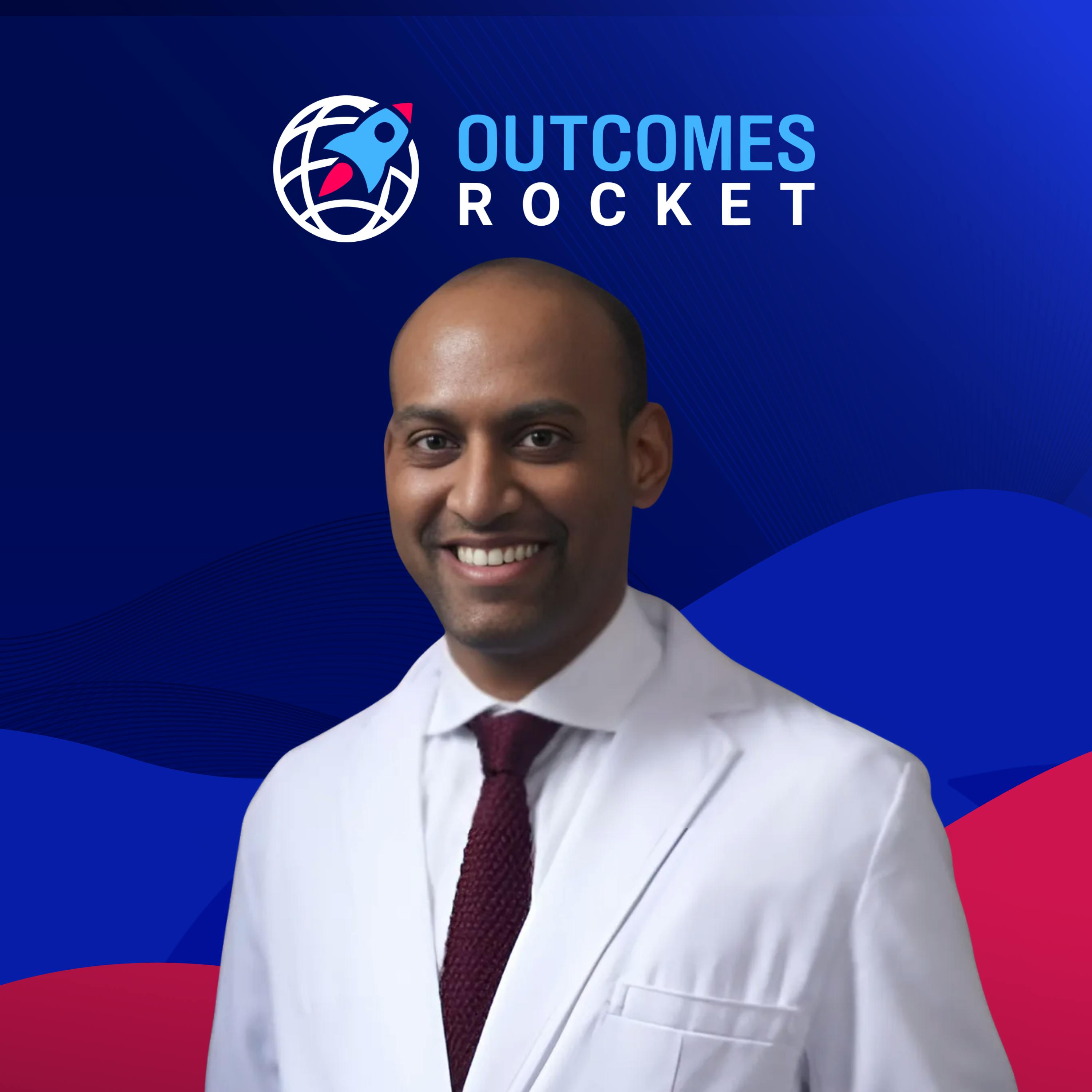
This podcast is brought to you by Outcomes Rocket, your exclusive healthcare marketing agency. Learn how to accelerate your growth by going to outcomesrocket.com The most critical factor for converting leads in aesthetic practices is the speed of response, a challenge increasingly met by AI-powered tools. In this episode, Dr. Shitel Patel, Founder and CEO of AD Vital, shares how his company is transforming patient management in aesthetic practices and med spas. AD Vital, a specialized CRM built by a plastic surgeon, bridges communication gaps between patients, staff, and EMRs in cash-pay specialties like plastic surgery, dermatology, and ophthalmology. Dr. Patel explains how practices can match the efficiency gains private equity seeks, such as rapid inquiry response, with tools like AI chatbots and voice AI. He advocates for empowering all employees with AI to boost their capabilities and overall practice productivity. Tune in and learn how innovative technology and strategic AI adoption can transform patient management, boost conversions, and scale aesthetic practices effectively! Resources: Connect with and follow Dr. Shitel Patel on LinkedIn. Follow the Ad Vital on LinkedIn and Instagram, and explore their website.
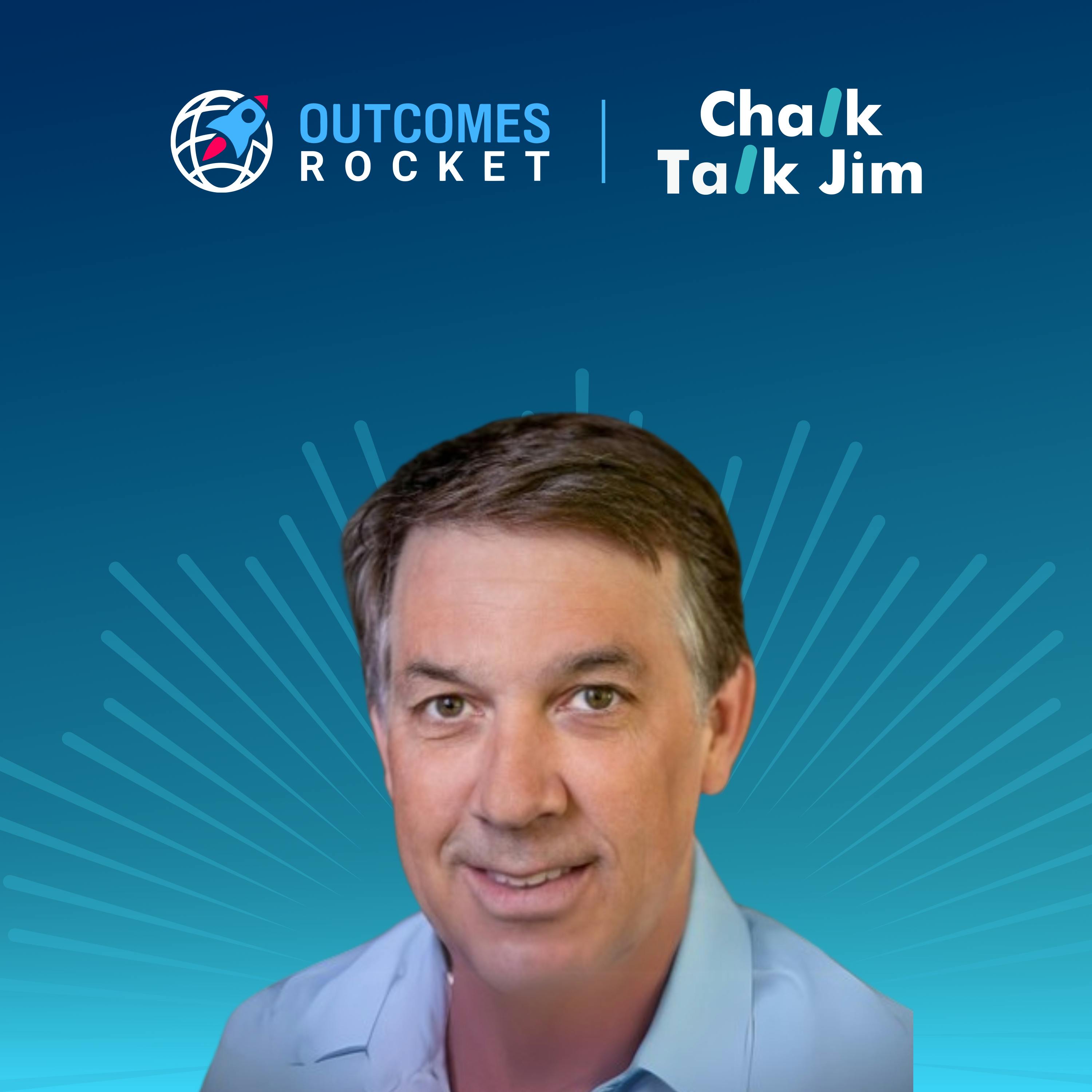
Atrial fibrillation remains elusive and deadly. In this episode, Mark Goddard shares his journey from cardiac device management to clinical innovation, highlighting how AI-powered tools are closing diagnostic gaps and enabling predictive care for conditions like atrial fibrillation (AFib). He explains how their wearable, real-time monitoring device empowers providers, improves patient outcomes, and outperforms outdated Holter and patch systems. Tune in and learn how digital health and innovative models can address these challenges and improve patient care! Resources: Connect with and follow Mark Goddard on LinkedIn. Follow InfoBionic.ai on LinkedIn and visit their website!

This podcast is brought to you by Outcomes Rocket, your exclusive healthcare marketing agency. Learn how to accelerate your growth by going to outcomesrocket.com Organizations must recognize that AI risk management is a shared responsibility across the entire organization, not solely confined to cybersecurity, legal, or compliance teams. In this episode, Michael Crowthers, Managing Director of Life Sciences Digital Quality & Compliance, and Chris Knackstedt, Managing Director of Cyber and Strategic Risk Practice at Deloitte & Touche, discuss the major challenges to AI adoption, highlighting governance, ethics, and compliance as top concerns. They emphasize the importance of integrating AI governance into existing risk management frameworks and navigating regulatory uncertainty, talent gaps, and ethical usage policies. The conversation also explores risks posed by AI agents, such as runaway behavior, misaligned learning, and context untraceability, stressing the need for human oversight and robust behavioral evaluations. Looking ahead, Michael anticipates a rise in governance tech to manage evolving AI risks, while Chris encourages organizations to build on their cybersecurity foundation and maintain momentum in AI strategy. Tune in and learn how to navigate the complex landscape of AI risk management and secure adoption! Resources: Connect and follow Mike Crowthers on LinkedIn. Connect and follow Chris Knackstedt on LinkedIn. Learn more about Deloitte on their LinkedIn and website. Subscribe to The Current, Deloitte Cyber’s quick-read series. Read our life sciences and health care industry insights. Visit the Deloitte AI Institute™ website. Explore The State of Generative AI in the enterprise 2024 year-end report.

This podcast is brought to you by Outcomes Rocket, your exclusive healthcare marketing agency. Learn how to accelerate your growth by going to outcomesrocket.com Efficient, tech-driven revenue cycle management is key to scaling behavioral health services and sustaining financial stability amid rising mental health care demand. In this episode, Chris Powell, CEO of Prosperity Behavioral Health, explains the pivotal role of financial infrastructure in the expanding field of behavioral healthcare. He discusses how revenue cycle management addresses the growing demand for mental health services. Chris highlights topics ranging from streamlining financial operations to leveraging technology and AI. He also highlights strategies for enhancing care access while supporting the operational growth of behavioral health organizations. Tune in to discover how simplifying financial operations and embracing technology are transforming behavioral healthcare access! Resources: Connect with and follow Chris Powell on LinkedIn. Follow Prosperity Behavioral Health on LinkedIn and explore their website.

This podcast is brought to you by Outcomes Rocket, your exclusive healthcare marketing agency. Learn how to accelerate your growth by going to outcomesrocket.com What if the key to transforming healthcare isn’t just technology, but bringing compassionate, personalized care back into the home? In this episode, Dr. Jessica Son, Chief Medical Officer of Clover Care Services at Clover Health, shared her journey from primary care physician to healthcare executive, driven by a desire to fix systemic gaps she observed while doing house-call medicine. At Clover Health, a next-generation Medicare Advantage company, she leads value-based care initiatives that combine technology with human-centered delivery. Their AI-powered Clover Assistant equips physicians with real-time insights to improve outcomes and reduce care gaps, while an in-home clinical team ensures patients receive personalized and coordinated support. Dr. Son emphasized the urgency of proactive, compassionate care amid a strained healthcare system and a growing elderly population. She welcomes partnerships with organizations and providers who share Clover’s mission to improve lives through holistic, home-based care. Tune in for a powerful conversation on how Clover Health is blending technology, human connection, and home-based support to improve outcomes for those who need it most! Resources: Connect with and follow Dr. Jessica Son on LinkedIn. Follow Clover Health on LinkedIn and explore their website.
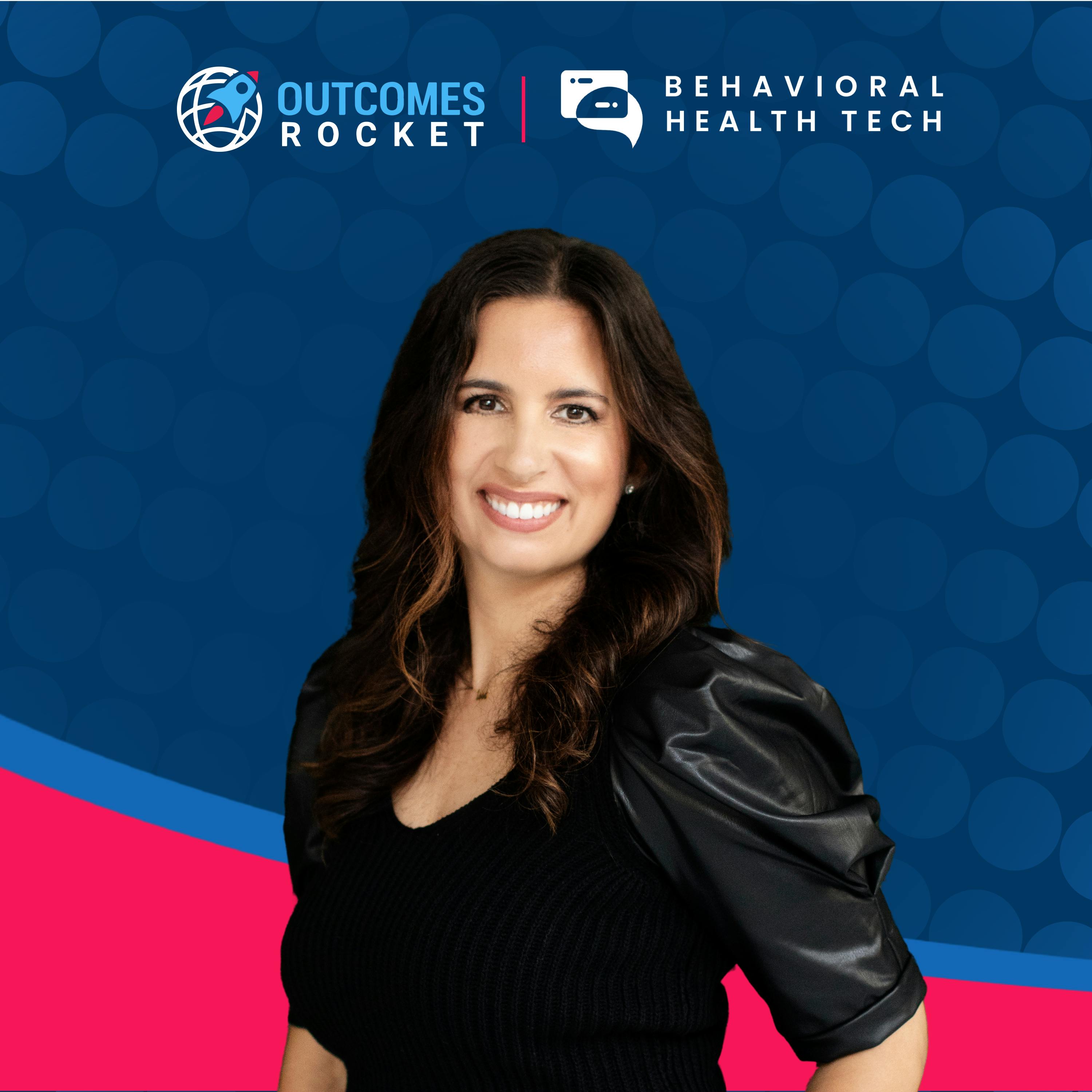
This podcast is brought to you by Outcomes Rocket, your exclusive healthcare marketing agency. Learn how to accelerate your growth by going to outcomesrocket.com Creating inclusive environments for neurodivergent individuals requires addressing stigma, fostering disclosure, and providing tailored solutions to support employees and their families. In this episode, Melissa Danielsen, CEO at Joshin, shares her journey of creating solutions to support neurodivergent individuals and their families in navigating fragmented systems and how her company aims to bridge these gaps. She explores the prevalence of neurodivergence in workplaces and the stigma surrounding disclosure. Melissa mentions the innovative outcomes achieved through coaching and navigation support services. She calls for increased awareness and specialized workplace solutions to foster inclusive environments. Tune in to learn how these innovative solutions are transforming support for neurodivergent individuals and reshaping workplaces for inclusivity! Resources: Connect with and follow Melissa Danielsen on LinkedIn. Follow Joshin on their LinkedIn, discover their website, or reach out at partnerships@joshin.com
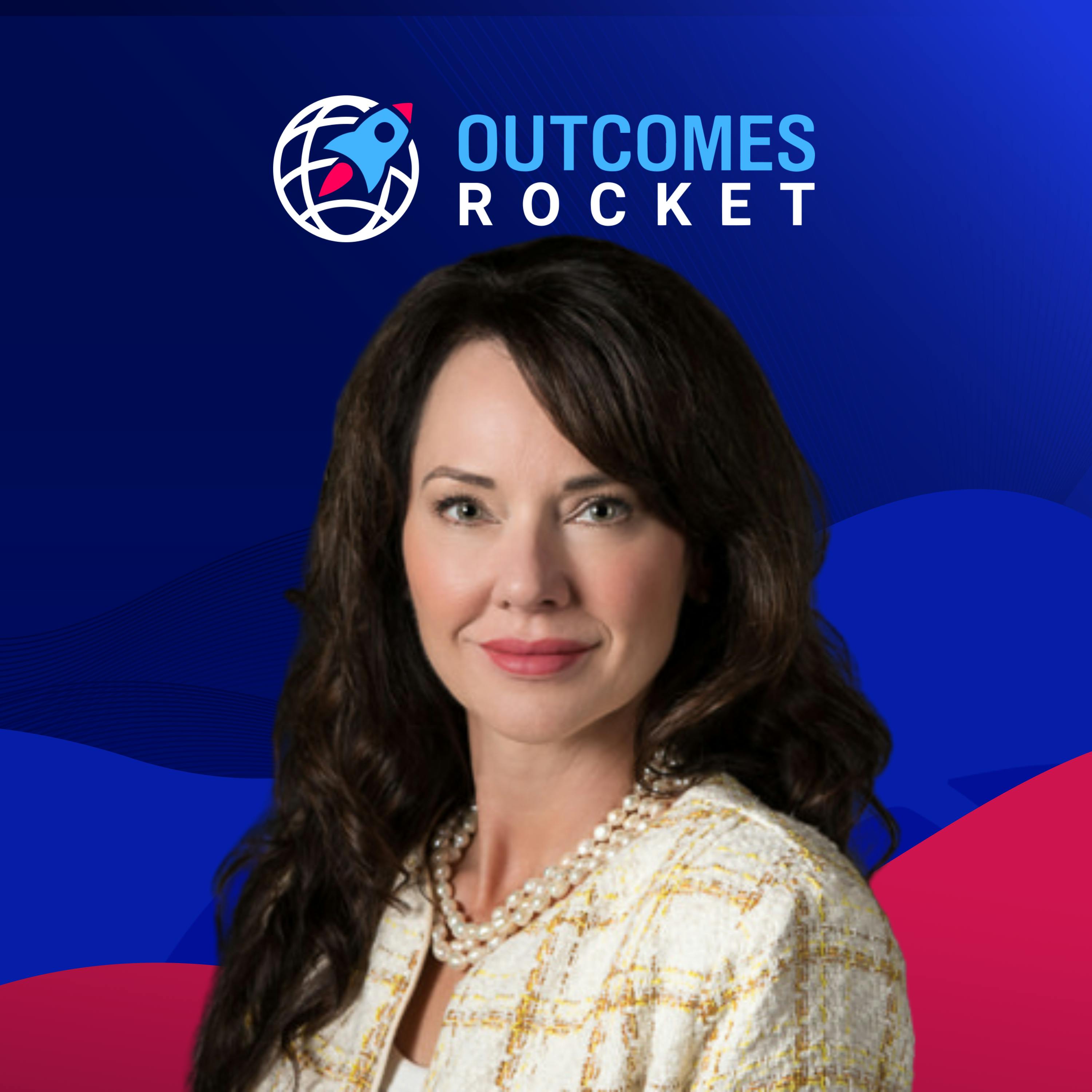
This podcast is brought to you by Outcomes Rocket, your exclusive healthcare marketing agency. Learn how to accelerate your growth by going to outcomesrocket.com Reducing patient wait times requires optimizing both patient navigation and health system resource utilization, a dual challenge tackled by platforms like DexCare. In this episode, Jamie Gier, Chief Marketing Officer at DexCare, shares how their patient access platform, originally spun out of Providence Health, is working to ensure that "nobody waits for care." She explains how DexCare reduces appointment wait times by optimizing patient search and discovery while matching demand with the right clinician, location, or virtual care option, particularly for low-acuity needs. Jamie also discusses the importance of addressing generational expectations, the digital needs of caregivers, and the competitive landscape of B2B health tech marketing, which demands a precise ideal customer profile. Finally, she highlights the balance between AI-driven solutions and relationship marketing, emphasizing that trust remains key in partnering with health systems. Tune in and learn about innovative patient access solutions and insightful B2B healthcare marketing strategies! Resources: Connect and follow Jamie Gier on LinkedIn. Learn more about DexCare on their LinkedIn and website. Discover more about CMO Huddles on their website and LinkedIn.

This podcast is brought to you by Outcomes Rocket, your exclusive healthcare marketing agency. Learn how to accelerate your growth by going to outcomesrocket.com A proactive approach to innovation, cross-industry learning, and open knowledge sharing is fundamental to achieving supply chain excellence in healthcare. In this episode, Steve Downey, Chief Supply Chain and Support Services Officer at Cleveland Clinic, shares how his team earned recognition in the Gartner Healthcare Supply Chain Top 25 by fostering a culture of continuous innovation and learning from other industries. He discusses leveraging digital transformation through a standardized tech stack across the system, enabling tools like AI for contract analysis and RPA for product conversions. Steve emphasizes the importance of people and collaboration, highlighting a "team of teams" culture that balances global standards with local empowerment and clinically-driven decisions. He also underscores the strategic role of supply chain in navigating financial pressures and enhancing patient outcomes, encouraging leaders to embrace this moment of opportunity. Tune in and learn how strategic leadership and advanced technologies are reshaping healthcare supply chains! Resources: Connect with and follow Steve Downey on LinkedIn. Follow the Cleveland Clinic on LinkedIn and explore their website.

This podcast is brought to you by Outcomes Rocket, your exclusive healthcare marketing agency. Learn how to accelerate your growth by going to outcomesrocket.com A robust governance structure, strong clinical relationships, and a focus on people are crucial for achieving supply chain excellence in healthcare. In this episode, Conrad Emmerich, Chief Procurement Officer and Senior Vice President of Supply Chain Management at Advocate Health, shares how his organization consistently earns recognition from Gartner for supply chain excellence. He explains that their clinically driven decision-making is supported by a robust governance structure involving over 450 team members across all levels. Conrad emphasizes the importance of developing and empowering their people and highlights their digital transformation, including a unified ERP system and advanced analytics that were crucial during Hurricane Helene. He concludes by stressing the growing need for supply chain leaders to be strategic, expert contributors within their organizations. Tune in and learn how these strategies improve patient outcomes, manage costs, and drive innovation! Resources: Connect with and follow Conrad Emmerich on LinkedIn. Follow Advocate Health on LinkedIn and explore their website.

After nearly two decades in medicine, Dr. Ben Reinking transformed his career to help other physicians navigate burnout and rediscover balance. In this episode, Dr. Ben Reinking shares his journey from facing burnout to reshaping his role to help fellow physicians navigate career transformations. He explores the differences between coaching and mentorship, the emotional intelligence gap in medical training, work-life balance challenges, and the unsustainable healthcare business model, offering insights on how small, intentional changes can lead to significant personal and professional growth. Tune in for insights on emotional intelligence, coaching, and intentional changes you need to thrive! Resources: Connect with and follow Dr. Ben Reinking on LinkedIn. Follow The Developing Doctor on LinkedIn and visit their website! Follow the University of Iowa Health Care on LinkedIn and discover their website!

This podcast is brought to you by Outcomes Rocket, your exclusive healthcare marketing agency. Learn how to accelerate your growth by going to outcomesrocket.com Building strong relationships is essential for achieving excellence in healthcare supply chain management. In this episode, Marisa Farabaugh, SVP and Chief Supply Chain Officer at AdventHealth, shares the strategies behind the organization’s top ranking on the Gartner Healthcare Supply Chain Top 25. She emphasizes that their true focus is on serving patients and the organization, not just earning recognition. Marisa discusses the importance of strong relationships, leadership development, and a culture of accountability, as well as their use of AI and data analytics to optimize inventory and improve supply chain visibility. She also highlights the role of digital transformation, smart technologies, and strong governance in driving innovation and cross-department collaboration. Tune in to learn how focusing on relationships, leadership, action, and digital innovation can elevate healthcare supply chain performance! Resources: Connect with and follow Marisa Farabaugh on LinkedIn. Follow AdventHealth on LinkedIn and explore their website.

This podcast is brought to you by Outcomes Rocket, your exclusive healthcare marketing agency. Learn how to accelerate your growth by going to outcomesrocket.com Mental health startups targeting employers need to understand employer challenges, build relationships, and innovate to make care accessible, affordable, and integrated. In this episode, Ryan Koo, Employee Benefits Consultant at Marsh McLennan Agency, talks about critical challenges and opportunities in the mental health landscape. Ryan highlights actionable insights for startups aiming to succeed in employer markets. He discusses the vital role of community and relationships in the healthcare ecosystem. Ryan also discusses emerging trends like integrated mental health solutions addressing acute and chronic needs. Tune in to discover how to bridge gaps in mental health care, foster innovation, and navigate the complex employer ecosystem with actionable strategies and expert insights! Resources: Connect with and follow Ryan Koo on LinkedIn. Follow Marsh McLennan Agency on LinkedIn and visit their website.

This podcast is brought to you by Outcomes Rocket, your exclusive healthcare marketing agency. Learn how to accelerate your growth by going to outcomesrocket.com AI partnerships are revolutionizing healthcare by alleviating physician burnout and improving patient care. In this episode, Pat Williams, CEO of iScribe, and Chad Dodd, Vice President of athenahealth, discuss their partnership and how it is accelerating AI adoption in healthcare. They highlight how iScribe’s ambient AI note generation tool, integrated within athenahealth’s EHR platform, is reducing documentation time and restoring joy to medical practice. Chad shares results from the 2025 Physician Sentiment Survey, noting a 10% drop in burnout and crediting AI as a key factor, while Pat adds that iScribe users report less EHR time and more same-day encounter rates. Together, they frame this as a pivotal moment for healthcare transformation, with AI enabling better automation, stakeholder collaboration, and improved patient outcomes. Tune in and learn how AI partnerships are transforming healthcare and enhancing the physician-patient experience! Resources: Connect with and follow Pat Williams on LinkedIn. Listen to Pat’s previous episode on our podcast here. Follow iScribeHealth on LinkedIn and explore their website. Connect with and follow Chad Dodd on LinkedIn. Follow athenahealth on LinkedIn and explore their website. Listen to Chad’s previous episode on our podcast here. Read athenahealth’s 2025 Physician Sentiment Survey here.

The future of senior care is here—and it’s powered by technology, personalized support, and the strength of strategic partnerships. In this special episode, we’re joined by three visionary leaders transforming the way seniors receive care: Dr. Ali Khan, Chief Medical Officer for Medicare at Aetna; Dr. Marc Watkins, Chief Medical Officer at Kroger Health; and Brian Urban, Head of Commercial Strategy and Population Health at Best Buy Health. Together, they explore how technology, access to nutrition, human-centered design, and collaboration can solve some of the most pressing challenges in senior care. Dr. Khan emphasizes building ecosystems that blend tech with human touch, from broadband infrastructure to virtual PT with language support. Dr. Watkins highlights the role of pharmacists and retailers in delivering smarter, more accessible care through food scoring systems and telehealth integration. Brian Urban explains how smart home devices, personal tech support, and AI are helping seniors live safely and independently—while reducing social isolation and hospital visits. From personalized nutrition to AI-powered care delivery, tune in to discover how these cross-industry leaders are taking bold action to build a more connected, compassionate future for aging adults! Resources: Connect and follow Dr. Ali Khan on LinkedIn. Learn more about Aetna, a CVS Health Company, on their LinkedIn and website. Connect and follow Dr. Marc Watkins on LinkedIn. Learn more about Kroger on their LinkedIn and website. Connect and follow Brian Urban on LinkedIn. Learn more about Best Buy Health on their LinkedIn and website.

This podcast is brought to you by Outcomes Rocket, your exclusive healthcare marketing agency. Learn how to accelerate your growth by going to outcomesrocket.com A resilient and efficient healthcare supply chain is critical for ensuring patients receive timely and appropriate care. In this episode, Tina Vatanka Murphy, President and CEO of GHX, shares how her company uses technology and data to strengthen fragile healthcare supply chains and prevent disruptions that can delay or cancel care. She explains that GHX serves all stakeholders, from manufacturers to hospitals, by anticipating issues before they affect patients. Tina challenges the misconception that procurement is only about cost, emphasizing that value-based care focuses on the best outcomes at the lowest total cost. She also underscores the importance of data, real-time feedback, and courageous leadership grounded in purpose, authenticity, and continuous growth. Tune in and learn how technology is revolutionizing the healthcare supply chain! Resources: Connect with and follow Tina Vatanka Murphy on LinkedIn. Follow GHX on LinkedIn and explore their website. Learn more about GHX’s upcoming Annual Summit here.

This podcast is brought to you by Outcomes Rocket, your exclusive healthcare marketing agency. Learn how to accelerate your growth by going to outcomesrocket.com As care delivery rapidly shifts beyond hospital walls, Medtronic is redefining patient monitoring and safety. In this episode, Blake Tatum, VP US Commercial for Medtronic Acute Care and Monitoring, discussed how the division supports over 115 million U.S. patients annually with technologies for blood oxygenation, airway management, and patient monitoring. As healthcare shifts toward ambulatory surgery centers (ASCs) and hospital-to-home care, Medtronic is investing in adapting its acute care solutions to these evolving settings. Their focus is on improving patient safety, reducing complications, and increasing efficiency through technologies like BIS anesthesia monitoring and McGrath video laryngoscopes. What sets Medtronic apart is its ability to integrate seamlessly with existing systems, combined with a dedicated ASC support team and access to Medtronic’s broader portfolio. The ultimate goal is to deliver clinically proven, scalable solutions that enhance outcomes while meeting new care and reimbursement models. Tune in to learn how Medtronic Acute Care and Monitoring is adapting to support ambulatory surgery centers and hospital-to-home care with innovative, scalable solutions! Resources: Connect with and follow Blake Tatum on LinkedIn. Follow Medtronic on LinkedIn and explore their website. Check out the Medtronic Acute Care and Monitoring website. Check out their Portfolio Brochure here. Listen to Blake Tatum’s previous episode on the Outcomes Rocket here.
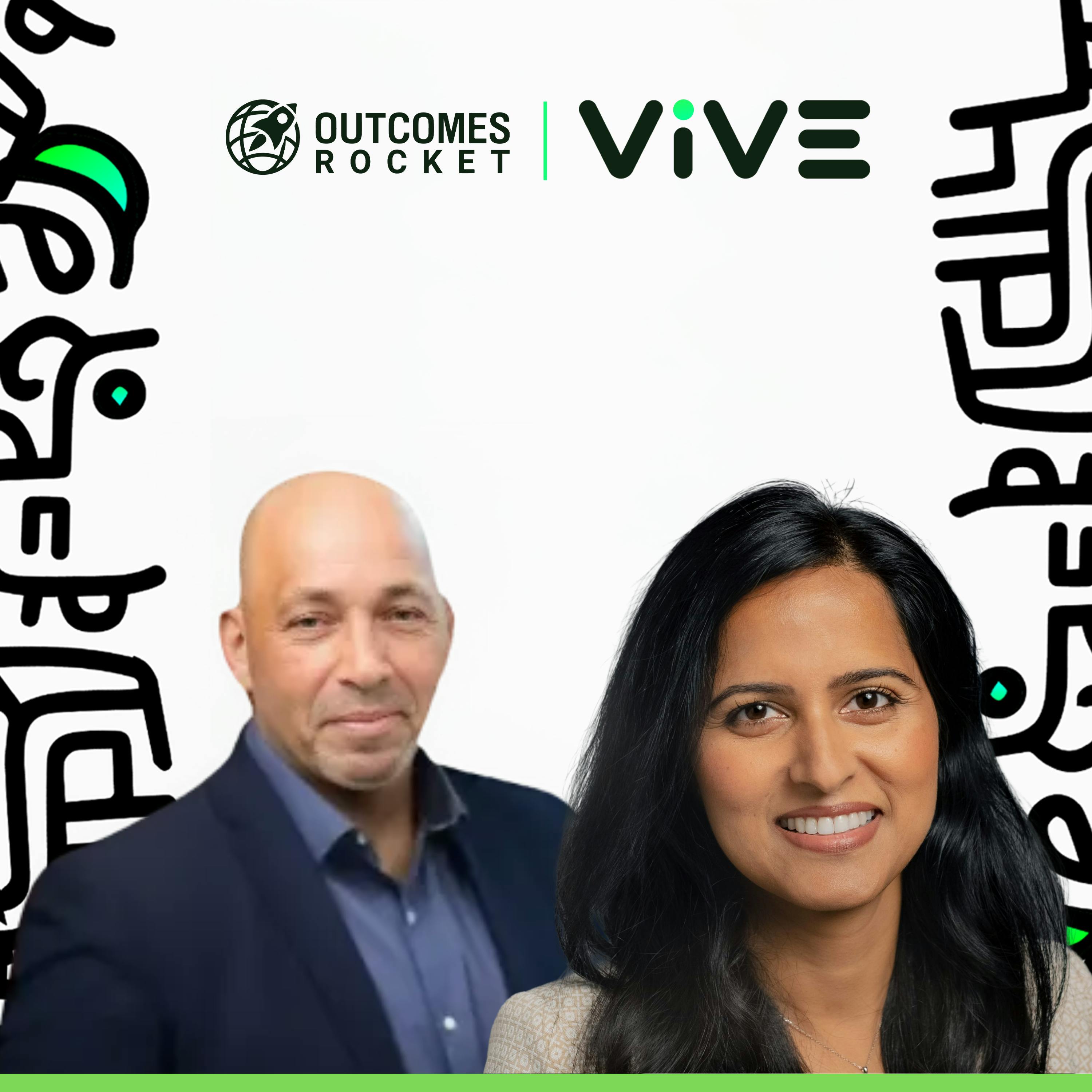
Focusing on whole-person health and addressing social determinants is critical for achieving equitable and accessible healthcare for all. In this episode, Adam Mariano, President and GM of Healthcare at LexisNexis Risk Solutions, and Sushma Akunuru, Senior Vice President and CIO at Independence Blue Cross, discuss how their organizations are driving change in healthcare. Adam emphasizes the role of data ecosystems and identity management in improving care access and efficiency, while Sushma highlights Independence Blue Cross’s commitment to whole-person health and digital transformation. They explore the impact of technology on health disparities, stressing the need for partnerships and a balanced approach to digitalization. Adam warns of privacy risks from uncontrolled digitalization, and Sushma underscores the importance of modernization for better service and accessibility. Tune in and learn why these leaders believe that focusing on social determinants of health and addressing health literacy is key to improving healthcare outcomes! Resources: Connect with and follow Adam Mariano on LinkedIn. Learn more about LexisNexis Risk Solutions on their LinkedIn, Instagram, and website. Follow and connect with Sushma Akunuru on LinkedIn. Discover more about Independence Blue Cross on their LinkedIn, Instagram, and website. Learn more about this video’s sponsor, UST Health, on their website.

The Guthrie Clinic advances rural healthcare with digital transformation and patient-centered innovation. In this episode, Terri Couts, Executive Vice President and Chief Digital Officer at The Guthrie Clinic, discusses how her organization is helping to drive change in healthcare delivery. She shares insights into the integrated centralized care model redesign in their pulse center, which allows for real-time patient monitoring and supports virtual nursing. Terri also emphasizes the importance of balancing innovation with sustainability, building internal capabilities, and focusing on solving real problems. Finally, she touches on the role of leadership in fostering a culture of digital transformation and the impact of AI and virtual care models in addressing workforce shortages and improving patient access. Tune in and learn how The Guthrie Clinic is leveraging technology to meet patients where they are, close care gaps, and create seamless experiences for both patients and providers! Resources: Connect with and follow Terri Couts on LinkedIn. Learn more about The Guthrie Clinic on their LinkedIn and website.

SpectraMedix helps health plans and systems navigate value-based contracts with technology that enhances administration, provider support, and data-driven decisions. In this episode, Rahul Lakhanpal, Chief of Staff, and Sean Kelly, Senior Vice President of Growth and Business Development at SpectraMedix, discuss how their organization is driving change in healthcare by focusing on value-based contract administration and management. They share insights into how SpectraMedix's platform helps health plans and health systems administer contracts, track performance, and translate contract terms into actionable insights for providers. Rahul and Sean also highlight how their technology differentiates itself by filtering information through the prism of the value-based contract, enabling better decision-making and improved outcomes in the evolving landscape of value-based care. Tune in and learn how SpectraMedix is transforming value-based care through contract administration, provider enablement, and data-driven insights! Resources: Connect with and follow Rahul Lakhanpal on LinkedIn. Follow and connect with Sean Kelly on LinkedIn. Learn more about SpectraMedix on their LinkedIn and website.

Elligint Health provides a toolset outside of the electronic medical record to help organizations perform value-based care arrangements. In this episode, Chris Caramanico, CEO of Elligint Health, discusses how his organization is helping drive change in healthcare delivery. He shares insights into how their solution creates proactive workflows to affect patient outcomes, emphasizing the importance of data-driven decision-making and patient activation. Chris also shares that their platform provides analytics, care management tools, and communication solutions to improve patient outcomes and drive efficiency. Finally, he touches on emerging trends in healthcare technology, particularly the role of AI and interoperability, and how Elligint Health is addressing these needs. Tune in and learn how Elligint Health is transforming healthcare with its integrated approach to value-based care, analytics, and patient activation! Resources: Connect with and follow Chris Caramanico on LinkedIn. Learn more about Elligint Health on their LinkedIn and website.

Employers should treat obesity as a chronic condition and support holistic programs that manage costs and provide ongoing GLP-1 support. In this episode, Dr. Stanley Crittenden, Chief Medical Officer at Quantum Health, discusses how his organization is driving change in healthcare delivery through navigation, technology, and a human-centric approach. He shares insights into Quantum Health's commitment to improving the member experience and clinical outcomes by addressing the complexities of healthcare and integrating AI technologies into their navigation approach. Dr. Crittenden also highlights the importance of pharmacy management, particularly in the rising cost of specialty medications and GLP-1s, and how Quantum Health is helping employers manage these challenges while prioritizing member well-being. Tune in to learn how Quantum Health is transforming healthcare through navigation, technology, and a focus on the whole person! Resources: Connect with and follow Dr. Stanley Crittenden on LinkedIn. Learn more about Quantum Health on their LinkedIn and website.

Samaritan helps individuals navigate the complex process of finding housing by providing financial assistance for basic needs like groceries, transportation, and access to housing navigators. In this episode, Ashish Pamula, Growth Lead at Samaritan, shares how his organization is tackling homelessness and housing insecurity by partnering with Medicaid and Medicare Advantage plans, as well as health systems, to provide critical resources and support. He discusses Samaritan’s mission to drive systemic change in healthcare by addressing the social determinants of health, emphasizing the need to target root causes rather than temporary fixes. Highlighting the unique challenges faced by vulnerable populations, Ashish advocates for a holistic, long-term approach. He also shares his enthusiasm for Samaritan’s ambitious goal of serving 100,000 unhoused residents over the next five years by expanding partnerships and reaching underserved rural communities. Tune in to learn how Samaritan is making a tangible difference in the lives of unhoused residents and driving meaningful change in the healthcare landscape! Resources: Connect with and follow Ashish Pamula on LinkedIn. Learn more about Samaritan on their LinkedIn and website. Email Ashish directly here.

AI, data, interoperability, communication, and transparency are key technologies and trends that will impact healthcare over the next five years. In this episode, Dr. Shafiq Rab, Executive Vice President and Chief Digital Information Officer for Tufts Medicine, and Suman Mishra, Chief Technology Officer of Healthcare for GS Lab GAVS, share their insights on the emerging trends and technologies that will impact healthcare over the next five years. They discuss the importance of AI, data, and interoperability in improving healthcare outcomes, as well as the need for strong governance and change management. Dr. Rab and Suman also delve into the challenges and opportunities of partnerships in the healthcare industry, and the importance of understanding patient needs and preferences to create a positive member experience. Tune in to learn how Tufts Medicine and GS Lab GAVS are collaborating to drive innovation and improve healthcare delivery! Resources: Connect with and follow Dr. Shafiq Rab on LinkedIn. Learn more about Tufts Medicine on their LinkedIn and website. Email Dr. Rab here and call him at +1 (609) 304-5342. Connect with and follow Suman Mishra on LinkedIn. Learn more about GS Lab GAVS on their LinkedIn and website. Email Suman directly here.

Lumeris introduces Tom, an agentic AI solution designed to support primary care teams and bridge the 2 billion-hour primary care gap in the US. In this episode, Dr. David Carmouche, Chief Clinical Transformation Officer at Lumeris, shares insights into the company's new agentic AI solution, Tom, and how it aims to revolutionize primary care. David discusses Lumeris's history, rooted in the belief that technology is crucial for high-quality, accountable primary care. He explains how Tom leverages the company’s data aggregation capabilities to launch multiple coordinated agents on behalf of patients, proactively extending care and freeing up clinicians' time. David also highlights the pressing need to address the 2 billion-hour primary care gap in the US and how Tom can help bridge it by automating tasks, providing services that should happen but aren't, and upskilling the delivery of primary care. Tune in to learn how Lumeris is leveraging AI to transform primary care, improve patient access, and empower clinicians! Resources: Connect with and follow Dr. David Carmouche on LinkedIn. Learn more about Lumeris on their LinkedIn and website. Email David directly here.

Hybrid care teams, blending in-person and virtual care, are improving efficiency, patient satisfaction, and return on investment. In this episode, Tammy Cress, Senior Vice President of Clinical Innovation and Solutions at Teladoc Health, discusses how Teladoc is addressing workforce challenges in healthcare by using digital solutions and hybrid care teams. Tammy explains the importance of listening to the market to design technology products that help health systems transform their care delivery models. She also highlights the use of hybrid care teams, which blend in-person and virtual care to improve efficiency, patient satisfaction, and return on investment. Additionally, Tammy shares insights from a recent market survey that indicates a significant increase in the adoption of telehealth and positive perceptions of its quality. Tune in to learn how Teladoc Health is driving change in healthcare delivery through technology and innovative care models! Resources: Connect with and follow Tammy Cress on LinkedIn. Learn more about Teladoc on their LinkedIn and website. Email Tammy directly here.
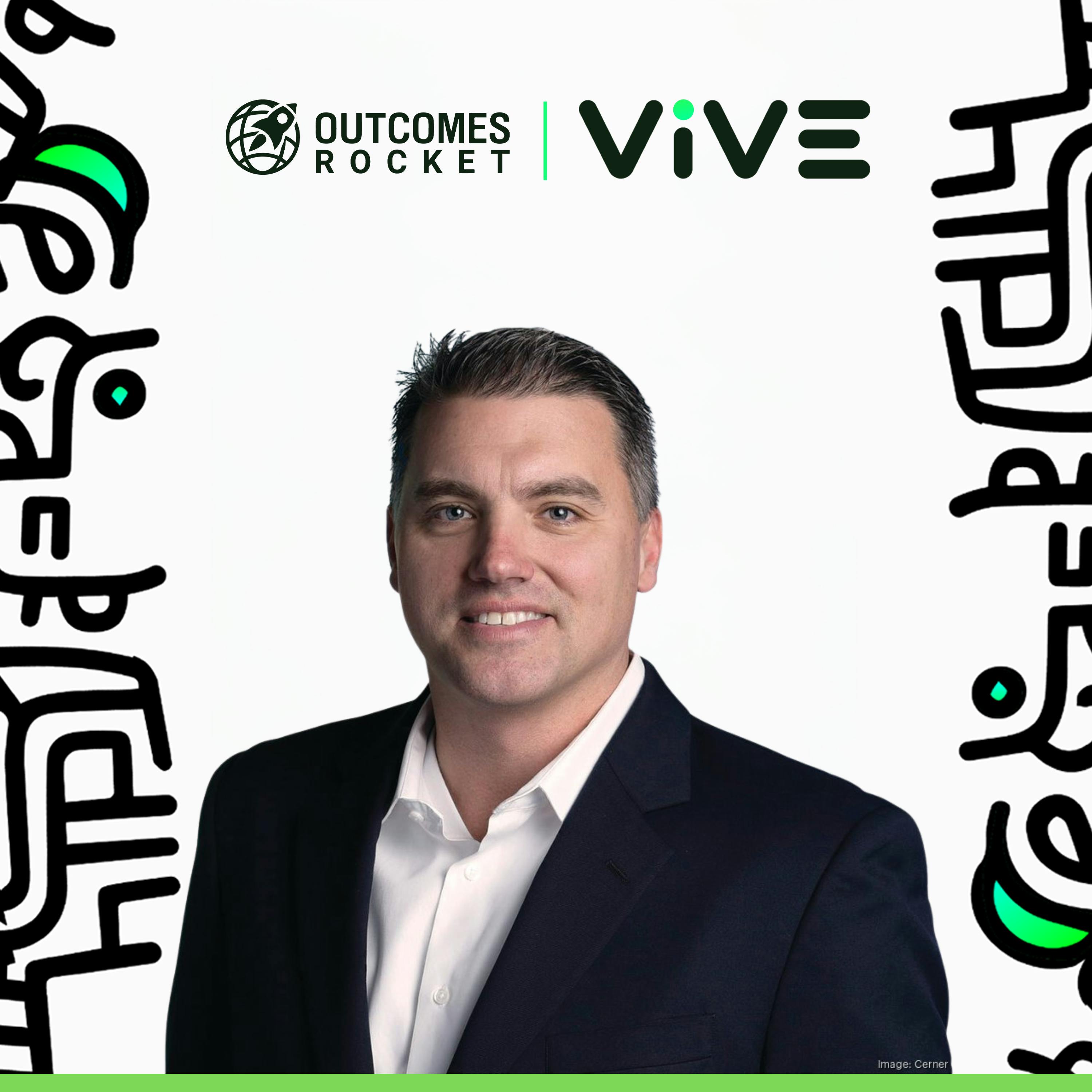
A company rebrand represents growth and a renewed commitment to solving key issues in the healthcare space with a focus on affordability, transparency, and quality. In this episode, Travis Dalton, President and CEO of Clerativ, discusses the company’s rebrand from Multiplan, highlighting its evolution, technological investments, and expanded role in healthcare. He explains Clerativ’s mission to align payers, providers, and employers through data-driven insights and transparency. Travis also explores emerging trends like AI and cloud-based solutions, stressing the need to integrate technology with improved business processes for cost reduction and quality improvement. Lastly, he shares Clerativ’s commitment to supporting rural healthcare providers with transparency tools that enhance accessibility and sustainability. Tune in and learn how Clerativ is paving the way for a more transparent, affordable, and equitable healthcare system! Resources: Connect with and follow Travis Dalton on LinkedIn. Learn more about Claritev on their LinkedIn and website.

Wearable health trackers are revolutionizing healthcare by providing continuous biometric data, improving patient care, and driving more informed health decisions. In this episode, Jason Oberfest, Vice President of Health Partnerships at ŌURA, discusses how the ŌURA Ring is transforming healthcare through its focus on sleep, readiness, and activity tracking. He highlights the potential for wearable health trackers to improve primary care, chronic care management, and women's health. Jason also explores partnerships with payers and providers, such as the collaboration with Essence Healthcare, to integrate wearable data into care plans and improve patient outcomes. Jason also emphasizes the importance of accuracy and scientific validation in wearable technology, ensuring that the data collected is reliable and actionable for both patients and healthcare professionals. Tune in and learn how wearable health trackers are shaping the future of healthcare! Resources: Connect with and follow Jason Oberfest on LinkedIn. Learn more about ŌURA on their LinkedIn and website.

Innovative partnerships and culturally tailored approaches are essential to expanding access to behavioral health services and addressing critical gaps in care. In this episode, Luis Suarez, CEO of Sanarai, and Stella Tran, Senior Program Investment Officer of the California Health Care Foundation, talk about the importance of building trust and leveraging cultural competence. Luis shares how his organization provides culturally relevant mental health services for Spanish-speaking communities, addressing a critical gap in access. Stella discusses how her foundation uses innovation as a lever to improve care quality and access for low-income populations. Tune in to discover how innovation and cultural competence are transforming behavioral health access for underserved communities! Resources: Connect with and follow Luis Suarez on LinkedIn. Connect with and follow Stella Tran on LinkedIn. Follow Sanarai on LinkedIn and explore their website. Follow the California Health Care Foundation on LinkedIn and discover their website. Listen to the podcast Making Waves in Health Tech here.

Addressing the critical shortage of neurologists and the rising prevalence of neurological disorders requires innovative solutions. In this episode, Branden Robinson, Chief Growth Officer at Sevaro Health, discusses how virtual neurology is revolutionizing healthcare delivery. He highlights the use of AI in triage to optimize neurologist time, ensuring that the most critical patients receive immediate attention. Branden also emphasizes the importance of a continuum of care model, connecting patients from acute care to outpatient teleneurology, improving patient outcomes, and reducing revenue leakage for health systems. Finally, he emphasizes the need for health systems to assess their neurology coverage, highlighting the benefits of implementing virtual solutions to enhance patient care and financial performance. Tune in and learn how Sevaro Health is leveraging digital health to bridge the gap in neurological care! Resources: Connect with and follow Branden Robinson on LinkedIn. Learn more about Sevaro Health on their LinkedIn and website. Email Branden directly here.

Chronic care management and remote patient monitoring are essential tools for addressing physician shortages, improving patient access, and enabling value-based care. In this episode, Mark Whittington, Managing Director at HealthXL, discusses how his organization is driving change in healthcare by focusing on chronic care management and remote patient monitoring (RPM). He emphasizes that these programs can help patients stay healthy longer, improve their quality of life, and reduce the burden on primary care physicians. Mark also highlights the importance of patient engagement, accountability, and a collaborative partnership between practices and their chronic care management/RPM provider for successful implementation. Finally, he touches on the emerging role of AI in gleaning insights from patient data to predict and prevent health issues. Tune in and learn how HealthXL is leveraging chronic care management and RPM to revolutionize healthcare! Resources: Connect with and follow Mark Whittington on LinkedIn. Learn more about HealthXL on their LinkedIn and website. Email Mark directly here.

Agentic AI has the potential to revolutionize healthcare operations by automating tasks, predicting challenges, and optimizing workflows. In this episode, Harpaul Sambhi, founder and CEO of Magical, explores how AI employees are transforming the workplace and addressing inefficiencies in healthcare. He highlights the burden of tedious tasks and technology integration challenges that shift focus away from patient-centric care. Harpaul contrasts the adaptability of Agentic AI, exemplified by Magical's AI employee earning an HFMA certification, with the limitations of Robotic Process Automation (RPA). He emphasizes that RCM leaders are embracing Agentic AI for its intelligence and scalability while advising healthcare executives to prioritize clarity, collaboration, and adaptability in digital transformation. Join us and discover how Agentic AI can provide a competitive advantage and transform healthcare operations! Resources: Connect with and follow Harpaul Sambhi on LinkedIn. Learn more about Magical on their LinkedIn and website.

The key to improving patient engagement lies in reducing friction and delivering rich communication experiences directly to the consumer. In this episode, Myron Wallace, Fractional Chief Product Officer at White Label Communications, discusses how his organization is simplifying healthcare communications through APIs that integrate telephony into SaaS solutions. He highlights the potential of Rich Communication Services (RCS) to enhance patient engagement by delivering interactive content directly within messages, reducing the need for separate applications. Myron also explores how organizations are using RCS for secure, branded messaging in areas like e-sign consent and patient education. While he acknowledges AI’s potential, he warns against the hype and stresses the importance of regulatory oversight and reducing patient friction through practical technologies like RCS. Tune in and learn how RCS could transform patient communication and engagement. Resources: Connect with and follow Myron Wallace on LinkedIn. Learn more about White Label Communications on their LinkedIn and website. Discover more about Myron on his website.